You Read the Blog! Good Job!
There is little quite as joyful as watching your child succeed. The swelling of the heart at their triumph is real. It can be understandably difficult to contain this joy which often bubbles out with a "Good job!"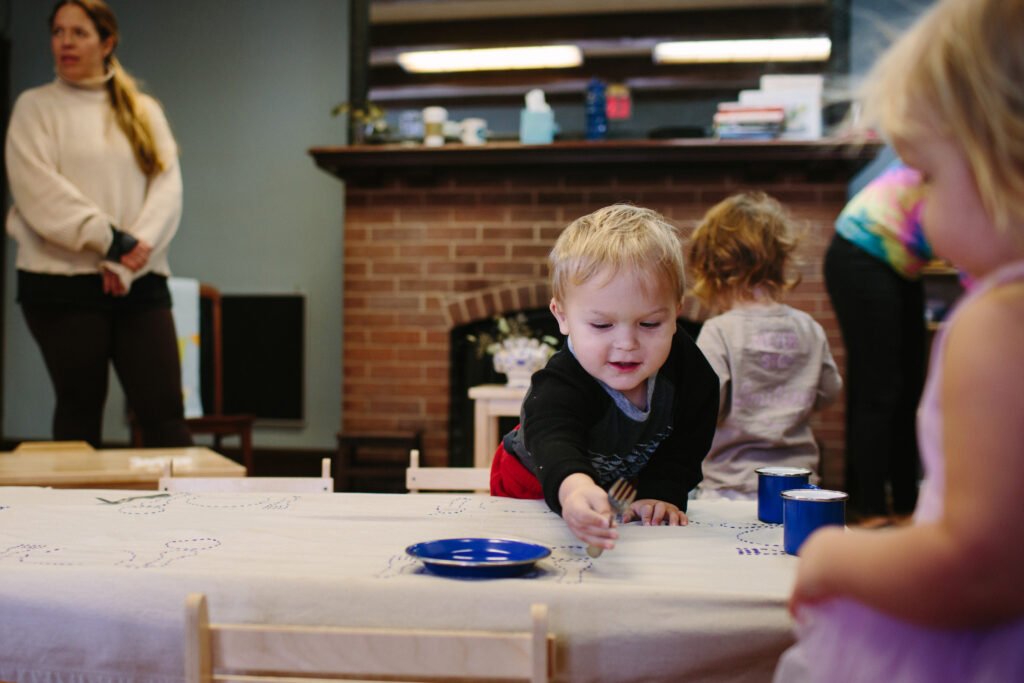 You've likely heard words in the Montessori world before about praise. The goal here is not to pile on but rather offer a quick reminder on the importance of your words.There are a few things to consider when you're praising your most precious people. First, our children want to please us. (Yes, even when it doesn't seem to be the case... it mostly is. They want to please us.) When we explicitly praise our children, we can unintentionally condition our children to expect and perform for praise.
You've likely heard words in the Montessori world before about praise. The goal here is not to pile on but rather offer a quick reminder on the importance of your words.There are a few things to consider when you're praising your most precious people. First, our children want to please us. (Yes, even when it doesn't seem to be the case... it mostly is. They want to please us.) When we explicitly praise our children, we can unintentionally condition our children to expect and perform for praise.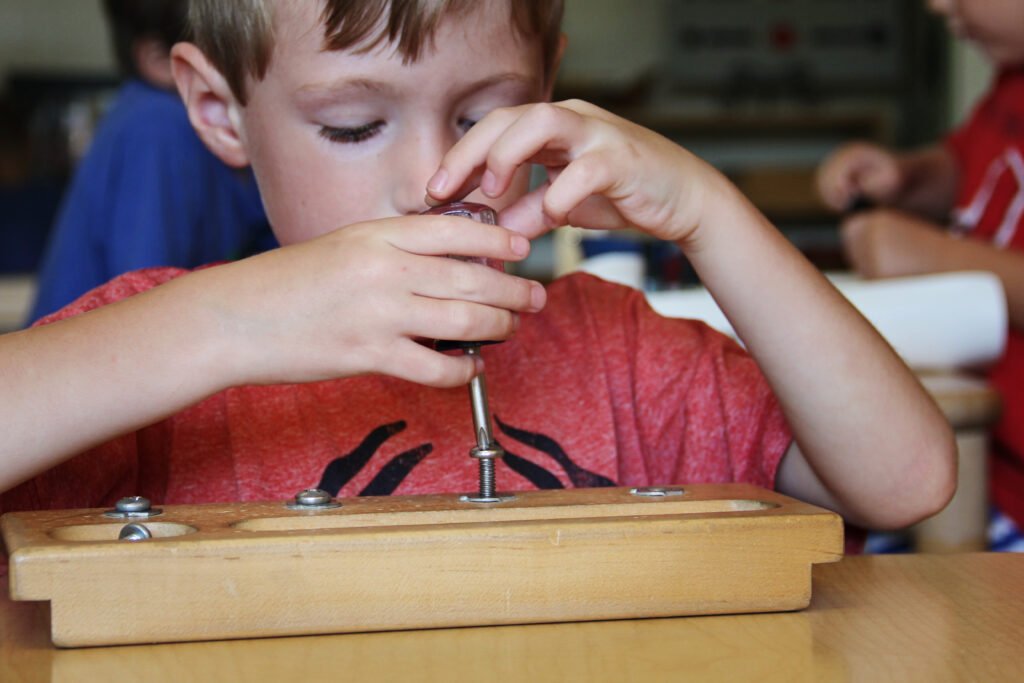 Instead of being internally motivated to try new things, succeed at a task, etc., their motivation becomes external. Keeping motivation internal supports our children's creativity and drive to take (healthy!) risks. If they're always looking to us for approval, we squelch their independence.
Instead of being internally motivated to try new things, succeed at a task, etc., their motivation becomes external. Keeping motivation internal supports our children's creativity and drive to take (healthy!) risks. If they're always looking to us for approval, we squelch their independence.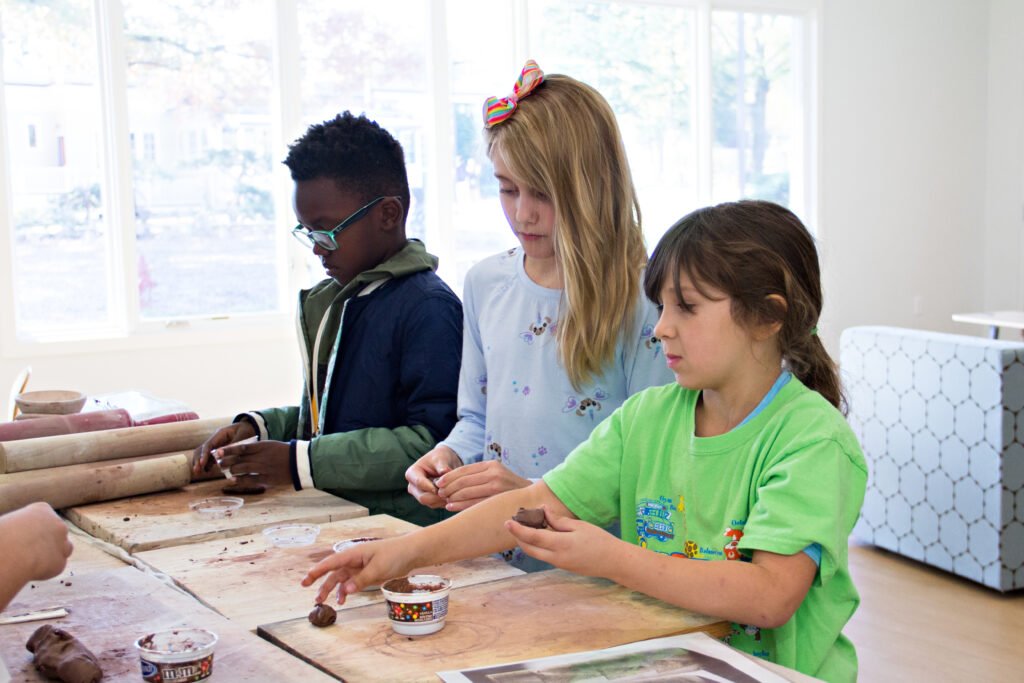 Also, it conditions them to expect praise for the simplest of actions. Yes, the first few times they put their socks on it's exciting but, let's be real, this is a life skill they should be developing. You do not need to throw a party for their every feat! Rest assured they will be pleased enough with their own accomplishment!
Also, it conditions them to expect praise for the simplest of actions. Yes, the first few times they put their socks on it's exciting but, let's be real, this is a life skill they should be developing. You do not need to throw a party for their every feat! Rest assured they will be pleased enough with their own accomplishment!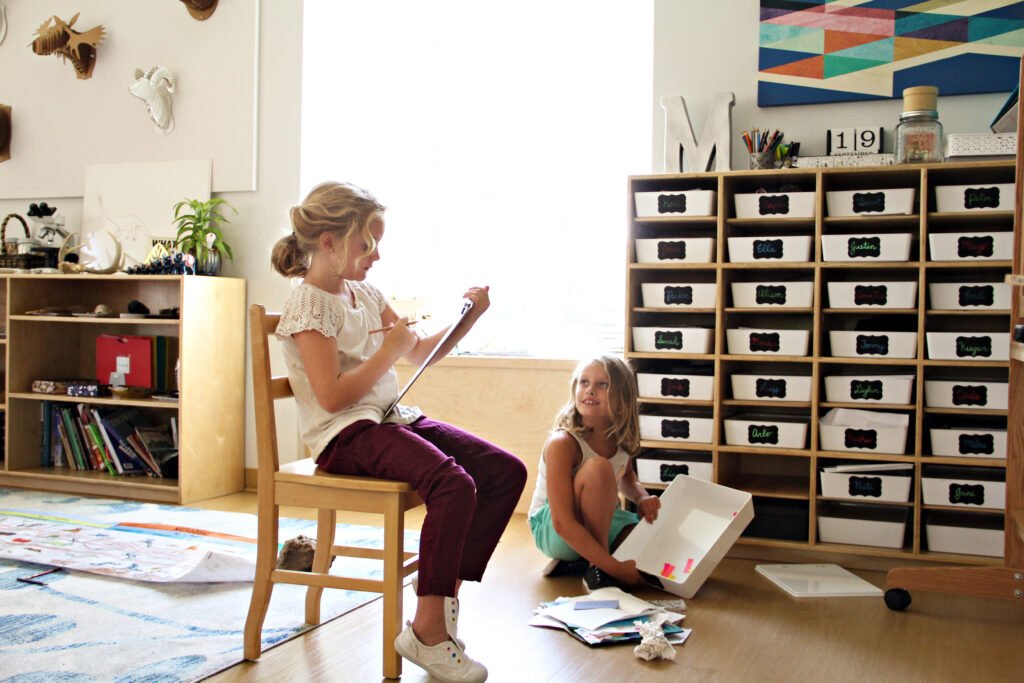 So, for those times when your child does look to you after accomplishing something and you want to do more than just smile...When your young child has put on their shoes how about, "You put them on!" Or when your child shows you their drawing, "You drew that. Would you like to tell me about what you drew?" These phrases show our pleasure in their success but they pin the pleasure more closely to the pleasure they internally experience through their own accomplishment. As your child grows, your feedback can become more explicitly linked to the process the child has gone through rather than the product. "You put your shoes on!" transitions into "You worked really hard to figure out how to solve that."(Think: growth mindset.)
So, for those times when your child does look to you after accomplishing something and you want to do more than just smile...When your young child has put on their shoes how about, "You put them on!" Or when your child shows you their drawing, "You drew that. Would you like to tell me about what you drew?" These phrases show our pleasure in their success but they pin the pleasure more closely to the pleasure they internally experience through their own accomplishment. As your child grows, your feedback can become more explicitly linked to the process the child has gone through rather than the product. "You put your shoes on!" transitions into "You worked really hard to figure out how to solve that."(Think: growth mindset.)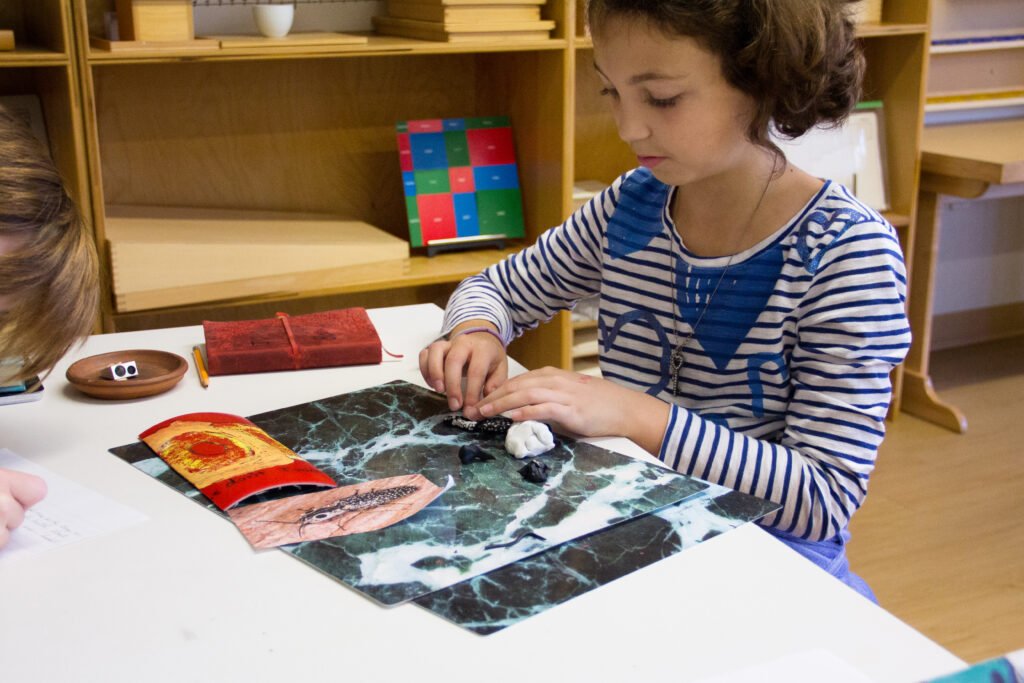 Lastly, overdoing the "Good job!" strips it of it's meaning. Our children either look for it at every turn or they dismiss it as meaningless because we use it incessantly. Save it for the time you need it. Keep its meaning intact.Okay, one last thought because supporting concentration is so very important ... please don't interrupt your children to praise them. If they are focused, don't break their concentration to let them know that you think they've done a good job. Their concentration speaks volumes about the contentment they get from their task at hand. Allow your children the pleasure of focus.Melinda, you knocked it out of the park yet again with this set of pictures! Thank you!
Lastly, overdoing the "Good job!" strips it of it's meaning. Our children either look for it at every turn or they dismiss it as meaningless because we use it incessantly. Save it for the time you need it. Keep its meaning intact.Okay, one last thought because supporting concentration is so very important ... please don't interrupt your children to praise them. If they are focused, don't break their concentration to let them know that you think they've done a good job. Their concentration speaks volumes about the contentment they get from their task at hand. Allow your children the pleasure of focus.Melinda, you knocked it out of the park yet again with this set of pictures! Thank you!


 Subbing is never easy work, and Ms. Brea did it with aplomb. She worked closely with Ms. Megan. This ensured a smooth transition for the children as well as keeping a conscientious teacher at ease.
Subbing is never easy work, and Ms. Brea did it with aplomb. She worked closely with Ms. Megan. This ensured a smooth transition for the children as well as keeping a conscientious teacher at ease.
 Ms. Brea fit in with the staff, helped with "outside of the school day" events, brought dance to our Elementary children and was (of course!) beloved by the Checkerboard children in particular. She is observant - so important for a Montessori teacher! - and insightful. She gave lessons, sparked research and deftly guided the social work in the Checkerboard classroom.
Ms. Brea fit in with the staff, helped with "outside of the school day" events, brought dance to our Elementary children and was (of course!) beloved by the Checkerboard children in particular. She is observant - so important for a Montessori teacher! - and insightful. She gave lessons, sparked research and deftly guided the social work in the Checkerboard classroom.



 There is much to be said for the Guide and Assistant relationship which supports the work of the entire classroom. Ms. Brea and Ms. Sophie worked together brilliantly. Thank you, Brea for coming to St. Louis to be with us. You have made our - and in particular, our children's - year richer by your presence. We sincerely hope that your path crosses with Villa di Maria's again in the future!Here's a peek at Checkerboard students working on a thank you project for Ms. Brea!
There is much to be said for the Guide and Assistant relationship which supports the work of the entire classroom. Ms. Brea and Ms. Sophie worked together brilliantly. Thank you, Brea for coming to St. Louis to be with us. You have made our - and in particular, our children's - year richer by your presence. We sincerely hope that your path crosses with Villa di Maria's again in the future!Here's a peek at Checkerboard students working on a thank you project for Ms. Brea!

 Ms. Brea, you will be missed!Melinda, thanks to you for these beautiful pictures highlighting Ms. Brea's role in our Elementary environment!
Ms. Brea, you will be missed!Melinda, thanks to you for these beautiful pictures highlighting Ms. Brea's role in our Elementary environment!
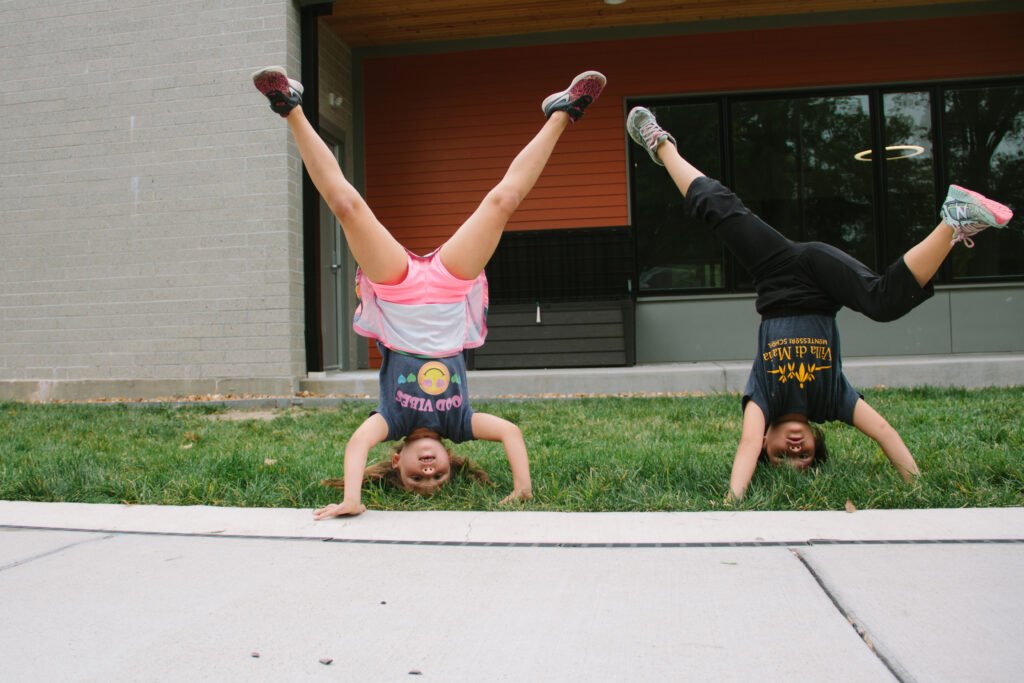
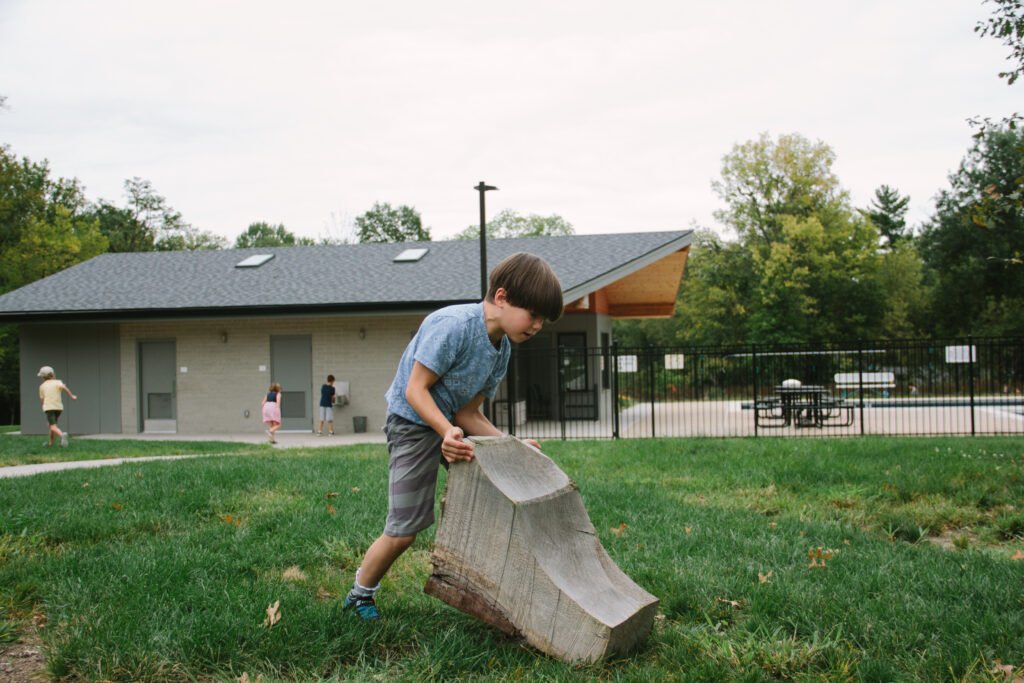 Not to mention all of this important work...
Not to mention all of this important work...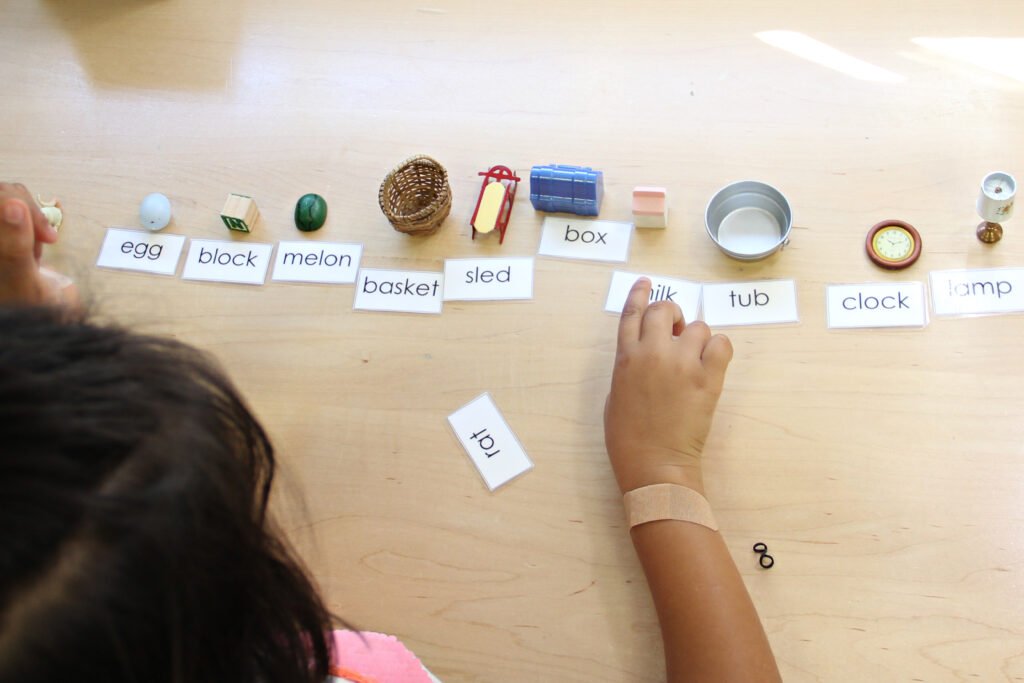
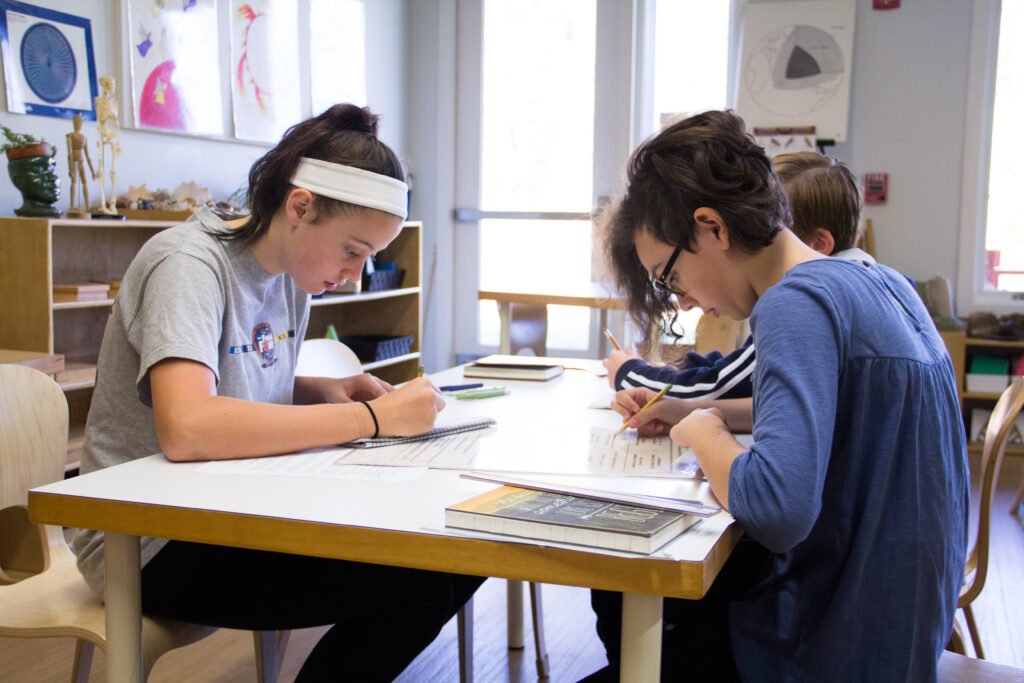 Depends on, and needs to be balanced with, lots and lots of...
Depends on, and needs to be balanced with, lots and lots of... Here are a few things to keep in mind:1) Children act differently when they are tired. Sometimes getting overly upset, being inflexible, not being able to concentrate or being grumpy, is just a sign of tiredness. If you're having trouble with any of the above, look at your child's sleep patterns. Are they consistently getting enough sleep?2) Sleep begets sleep. Staying up late does not equal sleeping in (especially for children!). Earlier to bed can equate to waking up later! The corollary to this is that sleep deprivation adds up. In other words, *carefully* dole out those late nights. There's no shame in being the parent that leaves the park early. Sleep is important!3) Bedtime is not the same as asleep time. When you check those
Here are a few things to keep in mind:1) Children act differently when they are tired. Sometimes getting overly upset, being inflexible, not being able to concentrate or being grumpy, is just a sign of tiredness. If you're having trouble with any of the above, look at your child's sleep patterns. Are they consistently getting enough sleep?2) Sleep begets sleep. Staying up late does not equal sleeping in (especially for children!). Earlier to bed can equate to waking up later! The corollary to this is that sleep deprivation adds up. In other words, *carefully* dole out those late nights. There's no shame in being the parent that leaves the park early. Sleep is important!3) Bedtime is not the same as asleep time. When you check those 
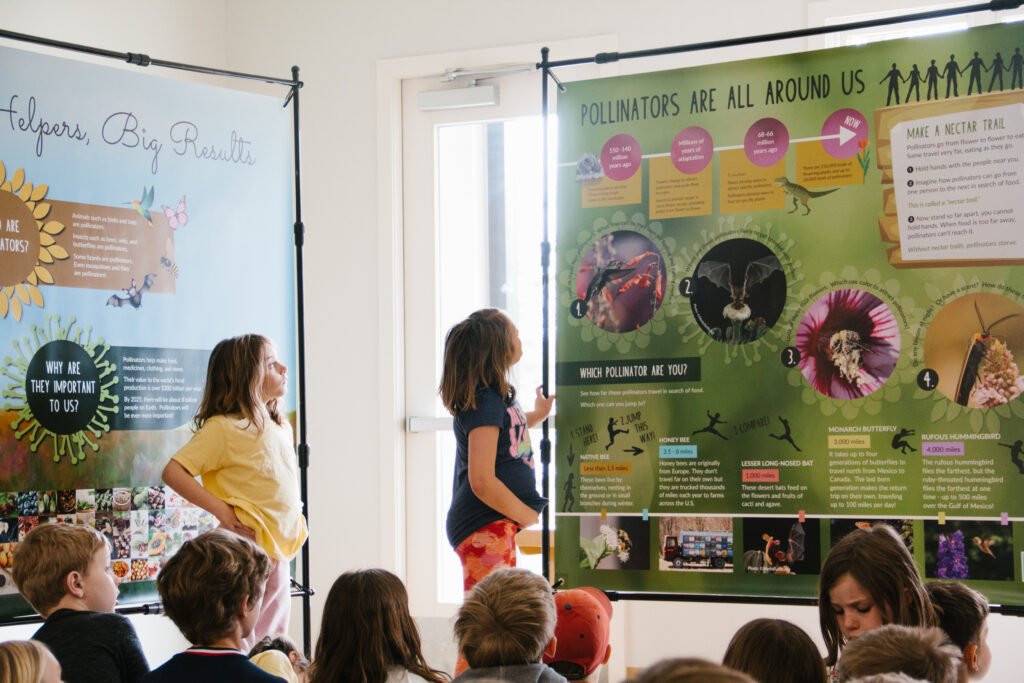
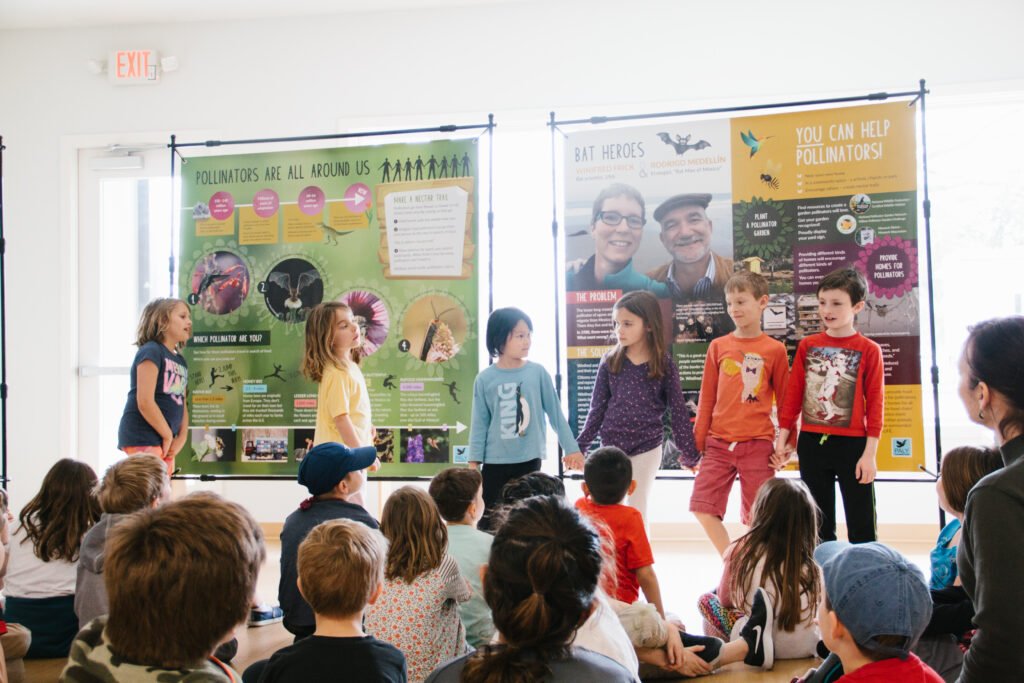
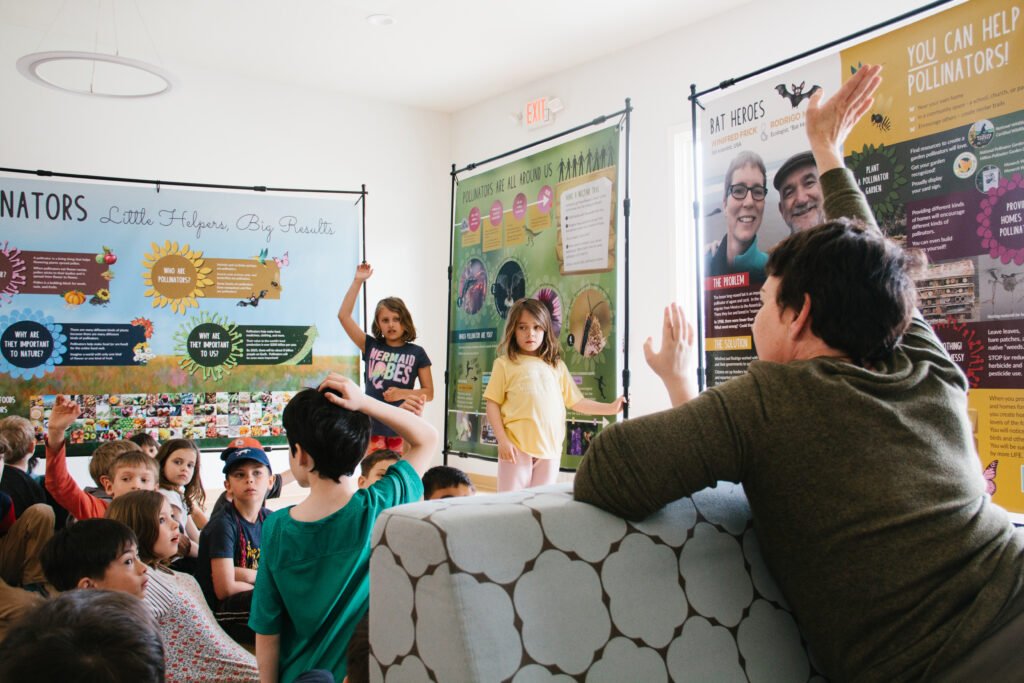
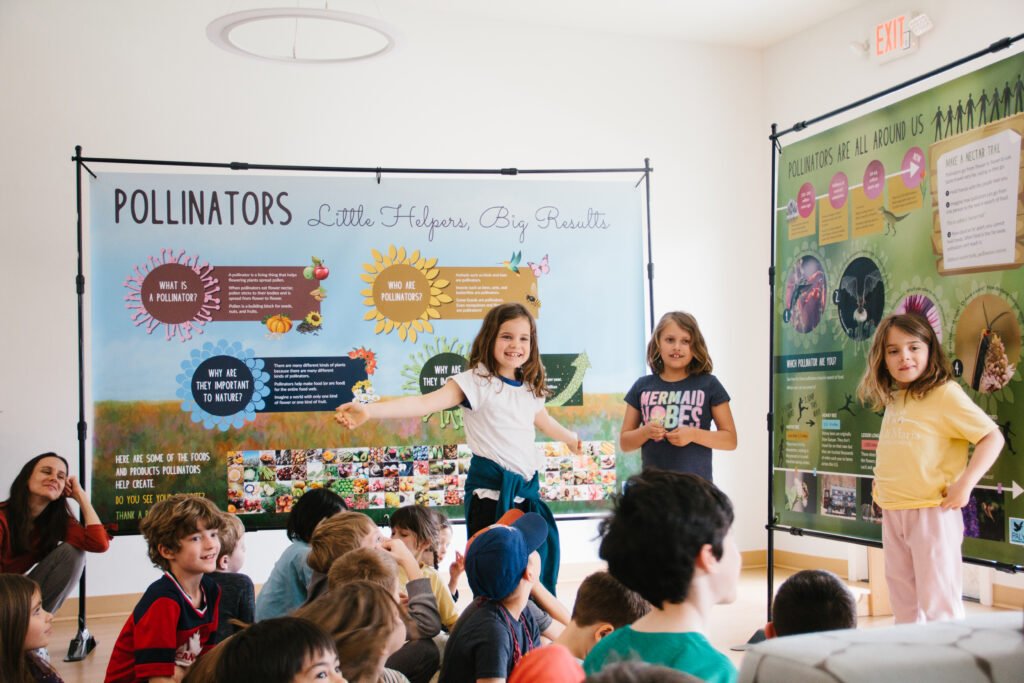
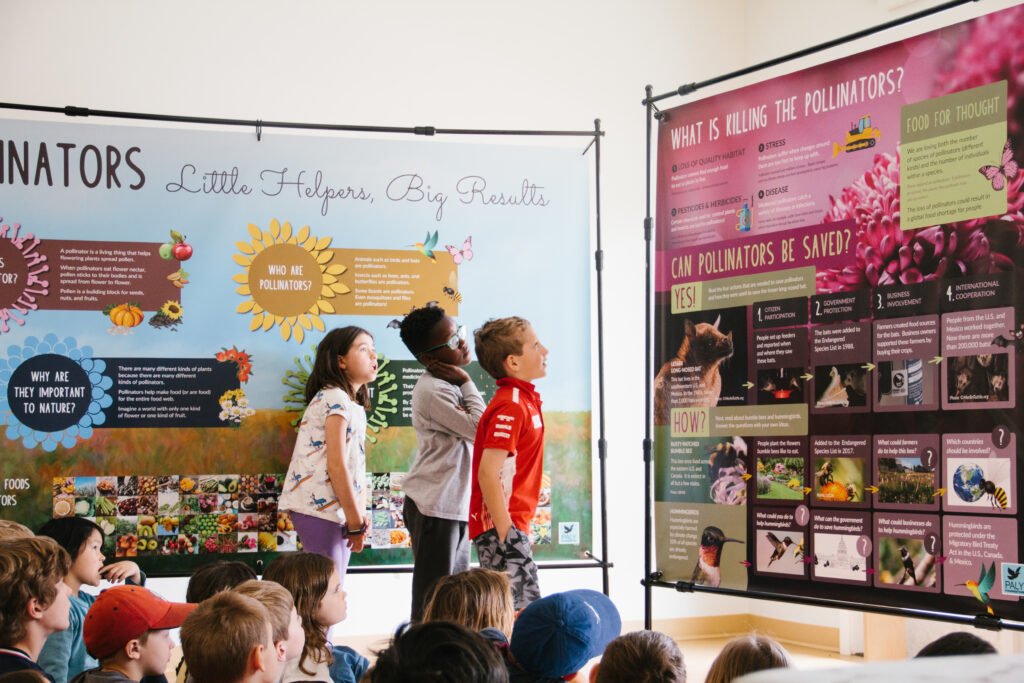
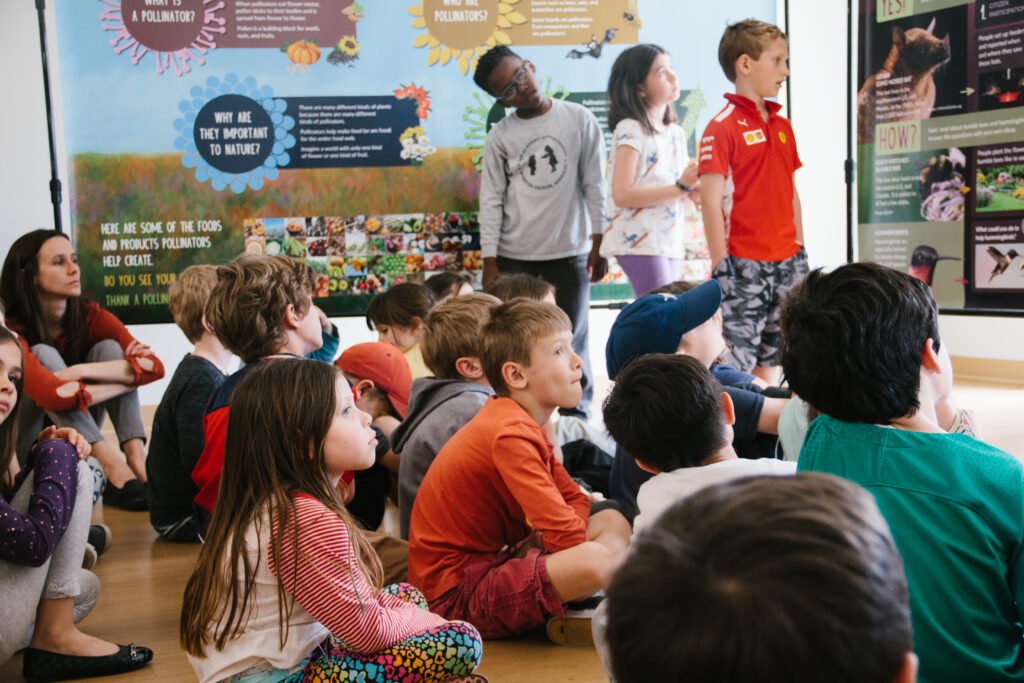
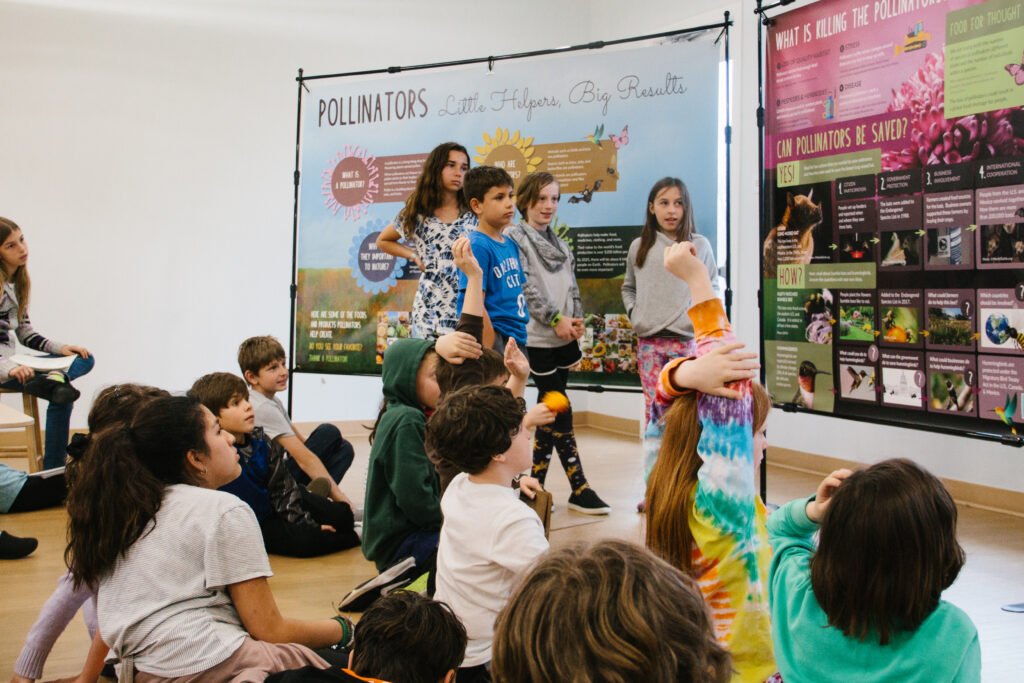
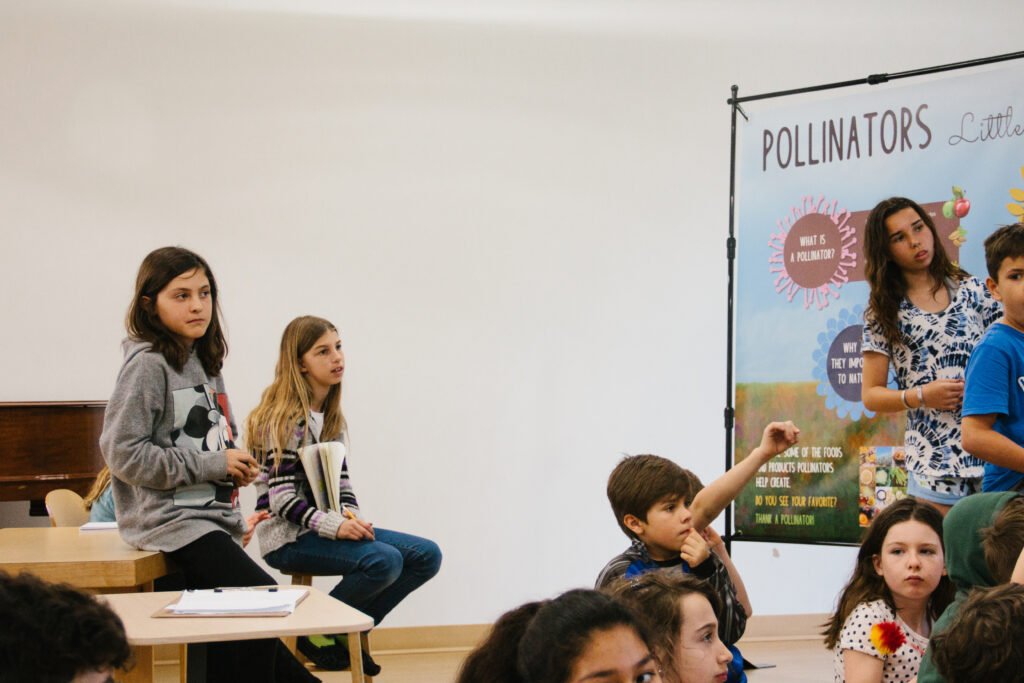 "Pollinators" along with other Paly Foundation exhibits can be viewed
"Pollinators" along with other Paly Foundation exhibits can be viewed 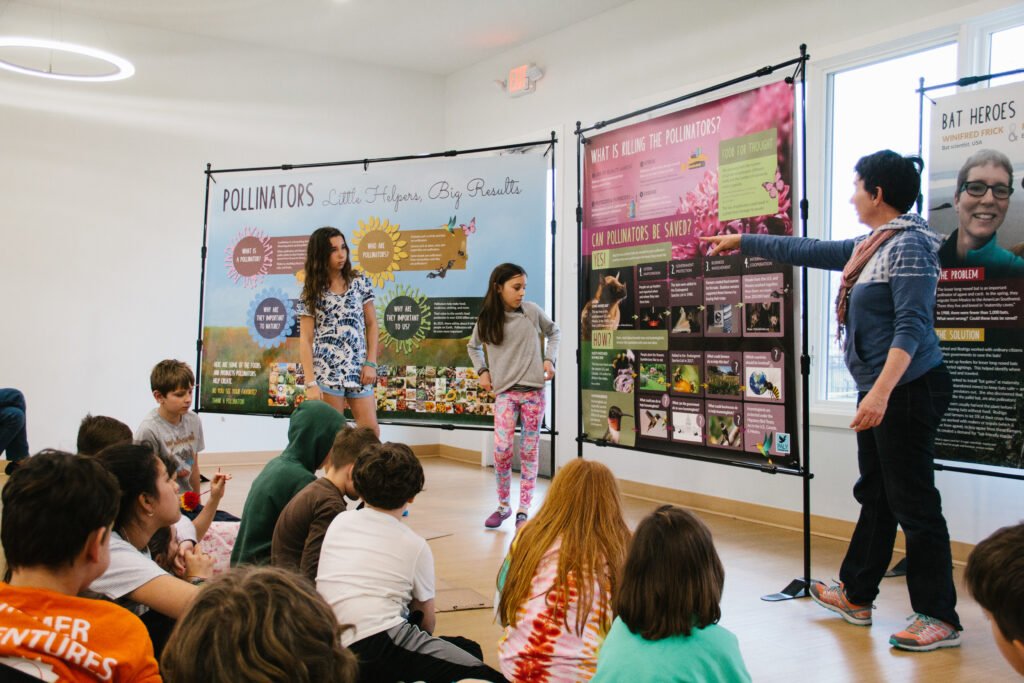


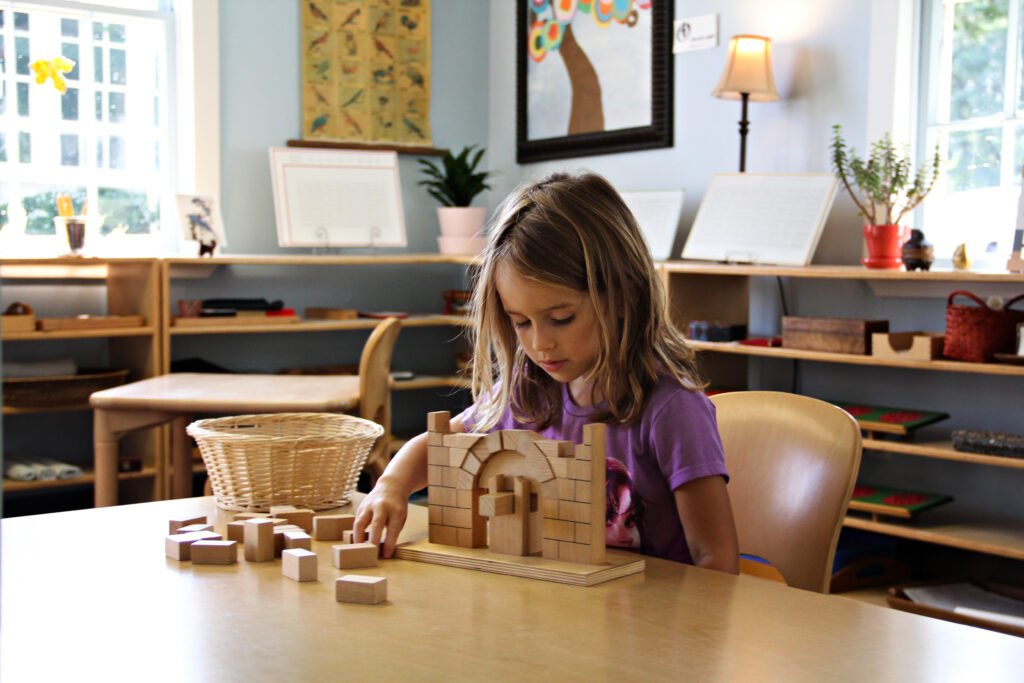
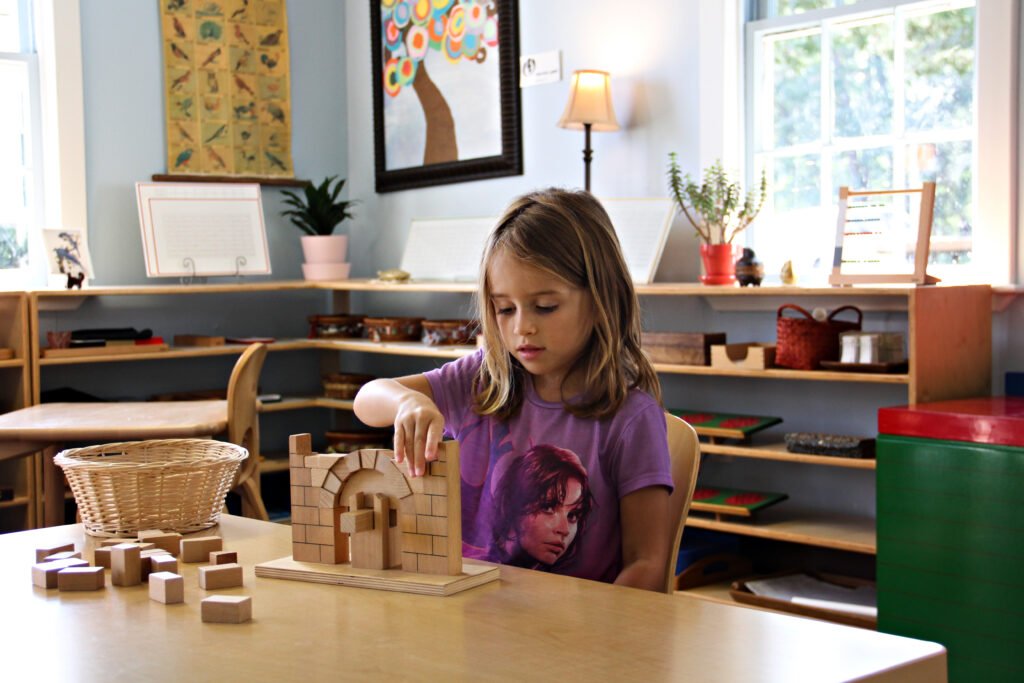
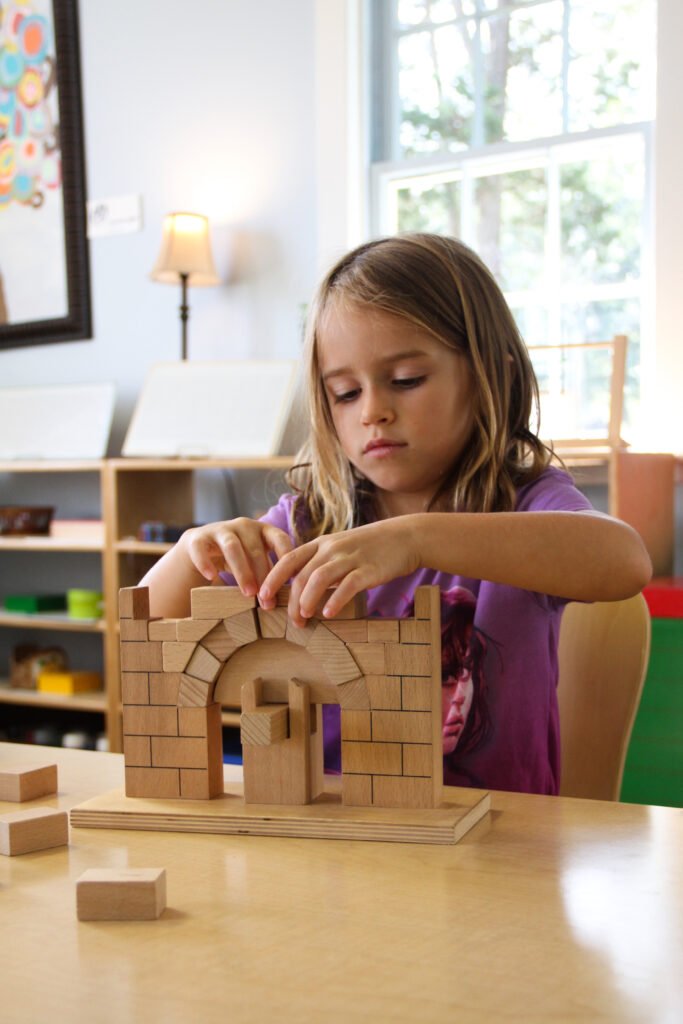
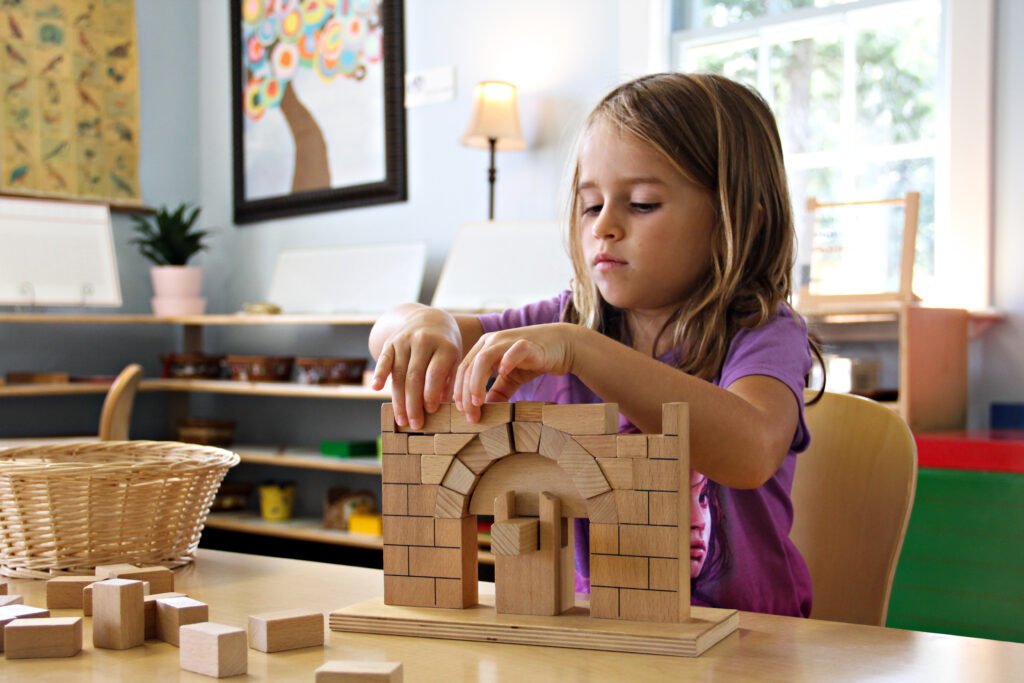
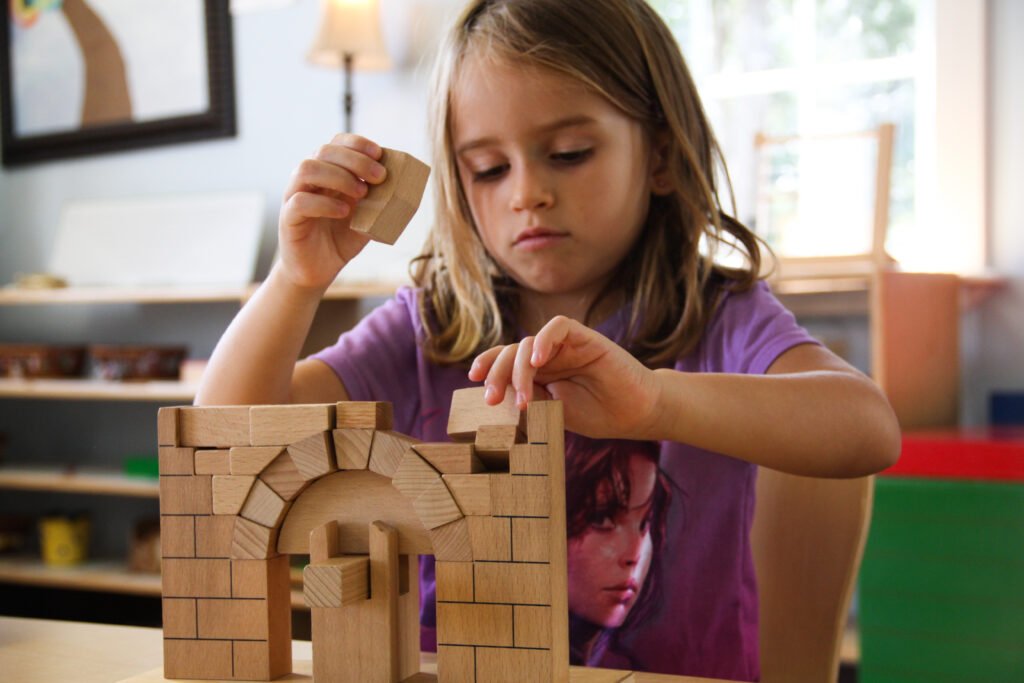
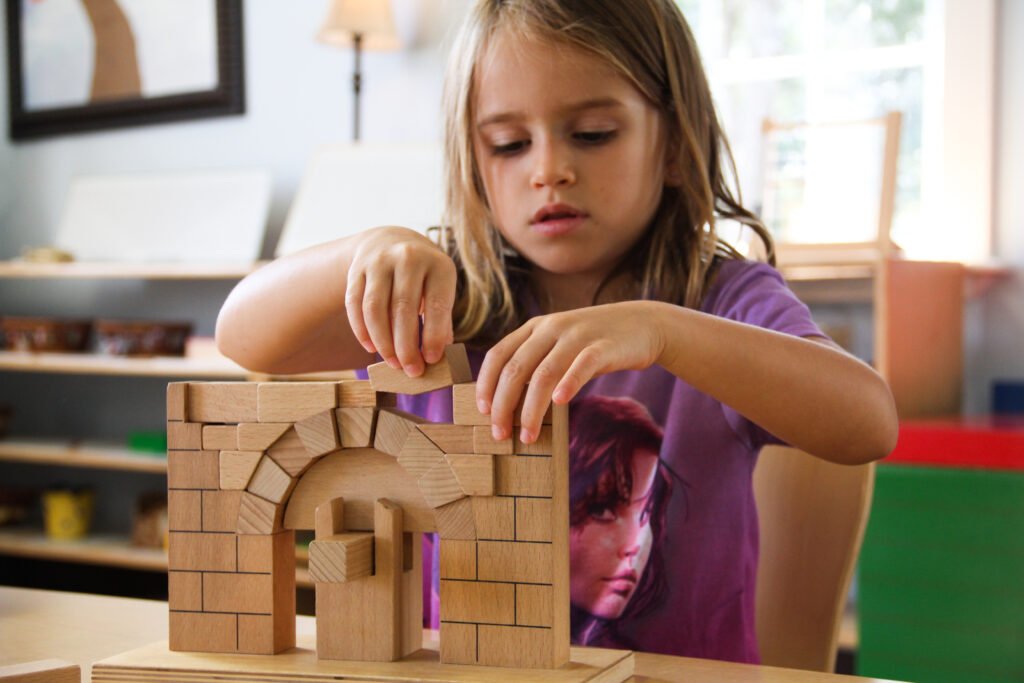

 This past weekend, however, parents had the opportunity to see the classroom in a whole new way. They explored the classroom without children, turning their focus on the materials themselves. The weekend provided a time lapse of all Villa di Maria offers, introducing parents to work of young children through the work of the Upper Elementary children.
This past weekend, however, parents had the opportunity to see the classroom in a whole new way. They explored the classroom without children, turning their focus on the materials themselves. The weekend provided a time lapse of all Villa di Maria offers, introducing parents to work of young children through the work of the Upper Elementary children.
 After silently walking through a classroom from each level (Parent Child, Children's House, Lower Elementary, Upper Elementary) and taking time to discuss as a group what they noticed in each of the classrooms, parents were invited to explore the environments more fully.Materials were laid out with instructions so that the parents could explore the work and follow the steps a child would follow doing the work. Other work was introduced through lessons. It's a real treat at any age to receive a lesson from a Guide!
After silently walking through a classroom from each level (Parent Child, Children's House, Lower Elementary, Upper Elementary) and taking time to discuss as a group what they noticed in each of the classrooms, parents were invited to explore the environments more fully.Materials were laid out with instructions so that the parents could explore the work and follow the steps a child would follow doing the work. Other work was introduced through lessons. It's a real treat at any age to receive a lesson from a Guide! While adults can't have the same experience that children have in the prepared environments, this is about as close as we can get to recreating our children's experience.
While adults can't have the same experience that children have in the prepared environments, this is about as close as we can get to recreating our children's experience.












 Parents left with a newfound appreciation for the work their children do at school, commenting that they would now go through their children's work folders with reverence.On the experience, one parent shared, "The objective is to experience the gift we are giving our children, and increasing our own understanding of the Montessori way. Seeing how the "lessons" have layers of concepts and teachings that take years to peel back. At the end, just when you think you "get it," like a great novel, you realize that all the activities are interconnected in a symphony of learning, spanning from when the children enter, to when they leave. Yep, you missed it the first time through. It's so subtle, you can't really explain it. How would you explain Mozart to someone who's never heard it?"This opportunity is made available once a year. If you missed it this time, look out for it next year; it's well worth your time!Thanks to Jade Venditte for sharing pictures, to the staff and supporters of Villa di Maria for making this happen and to the parents who took a chunk of their time to understand more fully what they are giving their children with the gift of Montessori.
Parents left with a newfound appreciation for the work their children do at school, commenting that they would now go through their children's work folders with reverence.On the experience, one parent shared, "The objective is to experience the gift we are giving our children, and increasing our own understanding of the Montessori way. Seeing how the "lessons" have layers of concepts and teachings that take years to peel back. At the end, just when you think you "get it," like a great novel, you realize that all the activities are interconnected in a symphony of learning, spanning from when the children enter, to when they leave. Yep, you missed it the first time through. It's so subtle, you can't really explain it. How would you explain Mozart to someone who's never heard it?"This opportunity is made available once a year. If you missed it this time, look out for it next year; it's well worth your time!Thanks to Jade Venditte for sharing pictures, to the staff and supporters of Villa di Maria for making this happen and to the parents who took a chunk of their time to understand more fully what they are giving their children with the gift of Montessori.

 While everyone made the most of the snow and cold weather, the warmer weather is beyond welcome!
While everyone made the most of the snow and cold weather, the warmer weather is beyond welcome! Extended Day is enjoying their treat of playing in the tree just outside the playground. This is a magical place... just beginning to move from the Children's House playground but not quite to the Elementary space.
Extended Day is enjoying their treat of playing in the tree just outside the playground. This is a magical place... just beginning to move from the Children's House playground but not quite to the Elementary space.

 Forts continue to be built and rebuilt.
Forts continue to be built and rebuilt. Appropriately, this fort is building a patio! Who doesn't want to spend a Spring day on the patio?
Appropriately, this fort is building a patio! Who doesn't want to spend a Spring day on the patio? Stone gathering for the patio.
Stone gathering for the patio. There are pretty high standards for the sticks used in some of the forts!
There are pretty high standards for the sticks used in some of the forts! Epic games of Ultimate Frisbee are underway.
Epic games of Ultimate Frisbee are underway.

 And lots and lots of tree climbing!
And lots and lots of tree climbing! Spring will continue to be enjoyed in all of its states so make sure your child has a change of clothes (Elementary as well as Children House - these children play hard in the mud!), boots and raincoats when appropriate. Happy Spring!
Spring will continue to be enjoyed in all of its states so make sure your child has a change of clothes (Elementary as well as Children House - these children play hard in the mud!), boots and raincoats when appropriate. Happy Spring!
 Upper Elementary students, along with Stefan, our fearless Facilities Manager, have taken on the task of making the chickens a home at VdM. Here's a peek at one day of construction.
Upper Elementary students, along with Stefan, our fearless Facilities Manager, have taken on the task of making the chickens a home at VdM. Here's a peek at one day of construction. Our thanks go out to to Rick’s Ace Hardware, Norrenberns Lumber & Hardware and The Easy Chicken who donated most of the construction supplies.
Our thanks go out to to Rick’s Ace Hardware, Norrenberns Lumber & Hardware and The Easy Chicken who donated most of the construction supplies. 











 As they prepare for the coop, the chickens are being cared for and socialized!
As they prepare for the coop, the chickens are being cared for and socialized! Jade Venditte, thank you for sharing the pictures and for your tireless work on The Fund for Villa di Maria!
Jade Venditte, thank you for sharing the pictures and for your tireless work on The Fund for Villa di Maria!
 Explore American history through the experiences of women who lived in St. Louis over the centuries. The Missouri History Museum Guide can be found here:
Explore American history through the experiences of women who lived in St. Louis over the centuries. The Missouri History Museum Guide can be found here:  Add some Mighty Girl Picture Books to your home collection or look for them in the library!
Add some Mighty Girl Picture Books to your home collection or look for them in the library!  Did you know these women have notable connections with Missouri? “Unsinkable” Molly Brown, Josephine Baker, Tina Turner, Susan B. Anthony and Laura Ingalls Wilder...Read about them, talk at the dinner table and consider a day trip!
Did you know these women have notable connections with Missouri? “Unsinkable” Molly Brown, Josephine Baker, Tina Turner, Susan B. Anthony and Laura Ingalls Wilder...Read about them, talk at the dinner table and consider a day trip!  Tuesday, March 26, 2019 6:00 PM - 7:30 PMSaint Louis County Library, Oak Bend BranchFriday Frenzy: Get inspired by the great Frida Kahlo and create your own artistic masterpiece. Ages 6-12.
Tuesday, March 26, 2019 6:00 PM - 7:30 PMSaint Louis County Library, Oak Bend BranchFriday Frenzy: Get inspired by the great Frida Kahlo and create your own artistic masterpiece. Ages 6-12.  Tuesday, April 9, 2019 7:00 PM – 8:30 PMSaint Louis Public Library, Central Library
Tuesday, April 9, 2019 7:00 PM – 8:30 PMSaint Louis Public Library, Central Library Fri, March 29, 2019 7:00 PM – 9:00 PMShameless Grounds, 1901 Withnell Avenue, 63118
Fri, March 29, 2019 7:00 PM – 9:00 PMShameless Grounds, 1901 Withnell Avenue, 63118





 The younger children were then invited to a sensorial experience of the drums at hand!
The younger children were then invited to a sensorial experience of the drums at hand!
 The bus trip is admittedly always a highlight of these adventures.
The bus trip is admittedly always a highlight of these adventures. The performance itself received rave reviews from children and adults alike!
The performance itself received rave reviews from children and adults alike!

 Children and adults from each class were invited to join the group on stage to learn a dance.
Children and adults from each class were invited to join the group on stage to learn a dance.

 What a morning for our Extended Day children!
What a morning for our Extended Day children! While Extended Day children boarded buses back to school, the Elementary children continued their adventure with a trip to Ikea for lunch! This was a real Practical Life work - managing money, choosing items, navigating the cafeteria and of course eating with friends!
While Extended Day children boarded buses back to school, the Elementary children continued their adventure with a trip to Ikea for lunch! This was a real Practical Life work - managing money, choosing items, navigating the cafeteria and of course eating with friends!

 Melinda Smith shared the joy of the day with us through her photographs. Thank you Melinda!
Melinda Smith shared the joy of the day with us through her photographs. Thank you Melinda!






 As usual, Melinda Smith brings light to the darkness. Thank you for the photographs, Melinda.
As usual, Melinda Smith brings light to the darkness. Thank you for the photographs, Melinda.
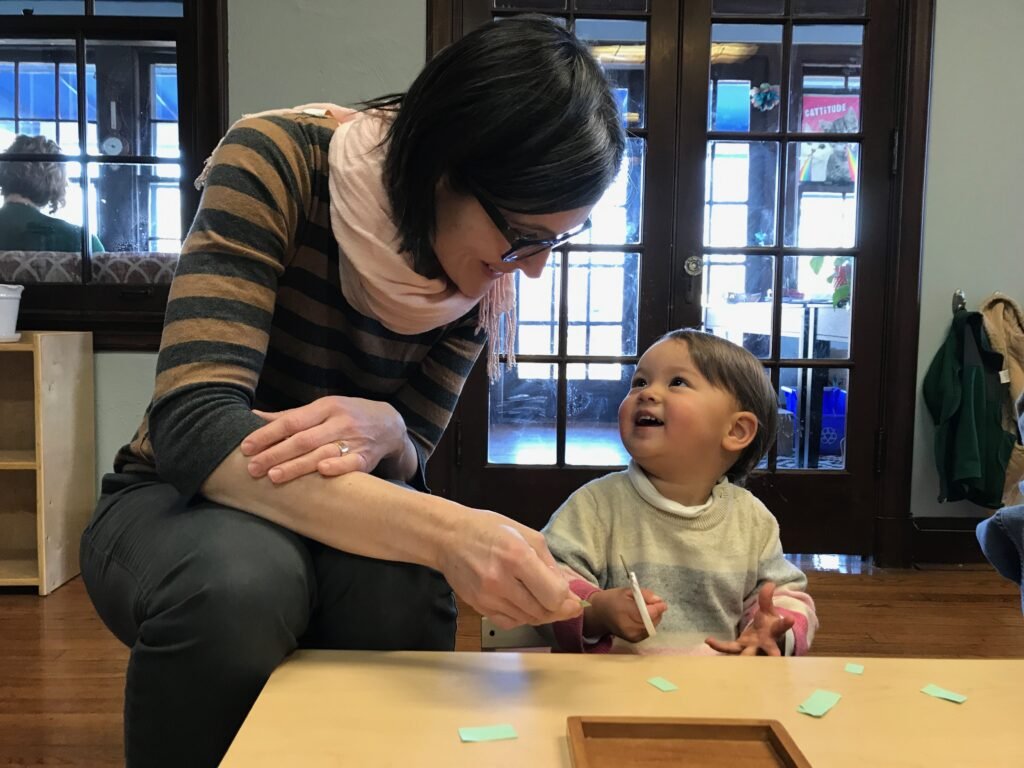
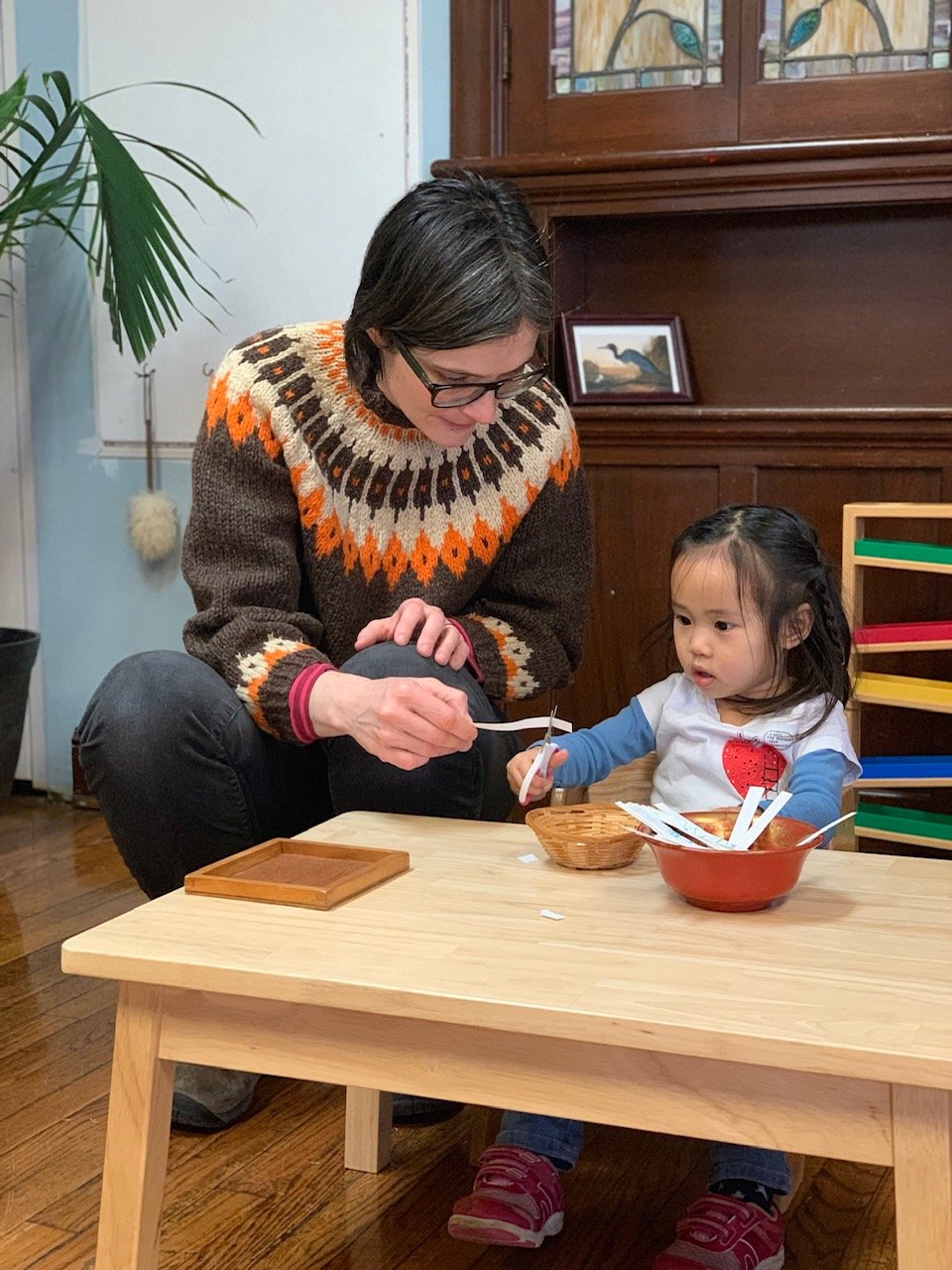
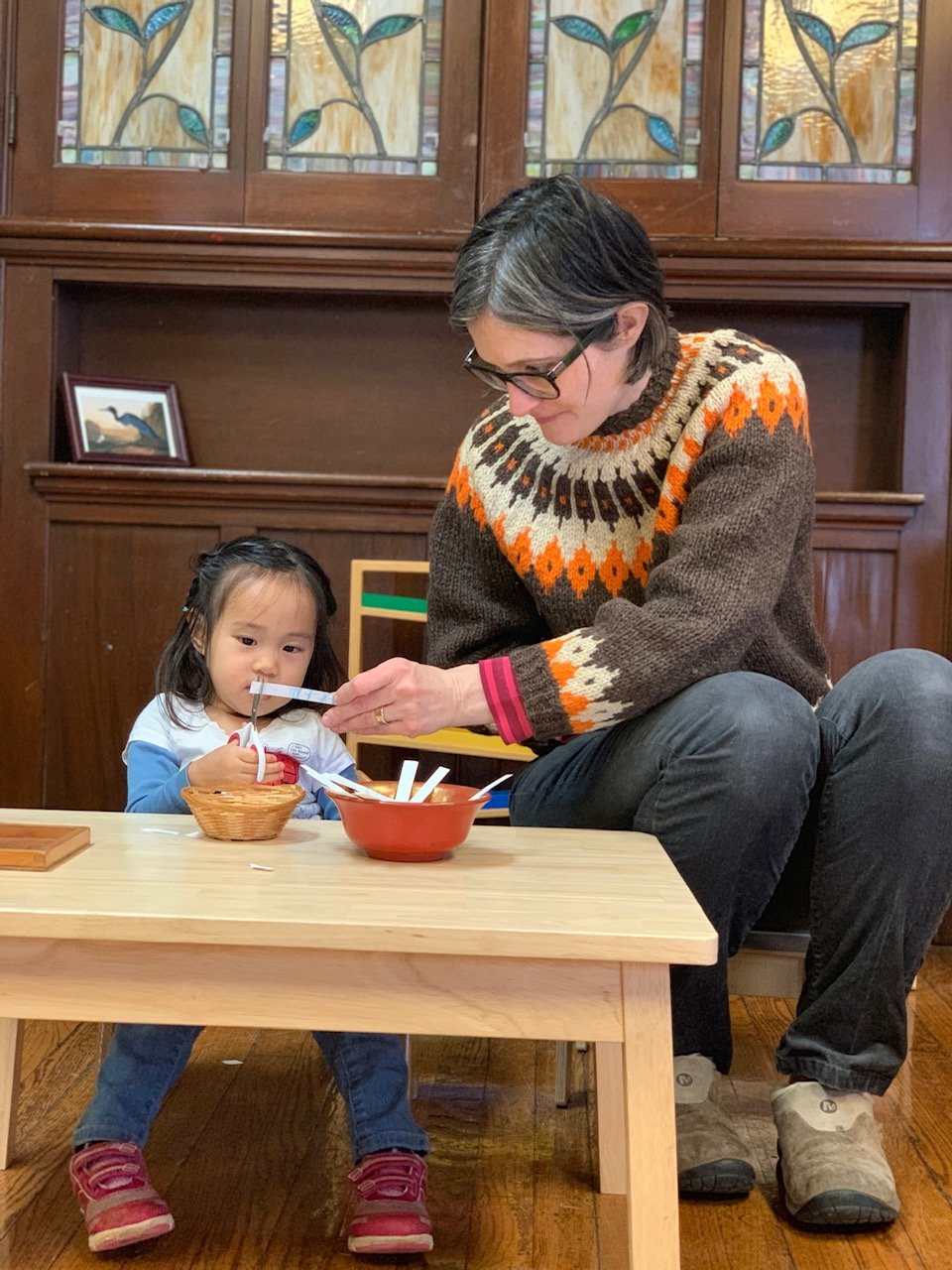
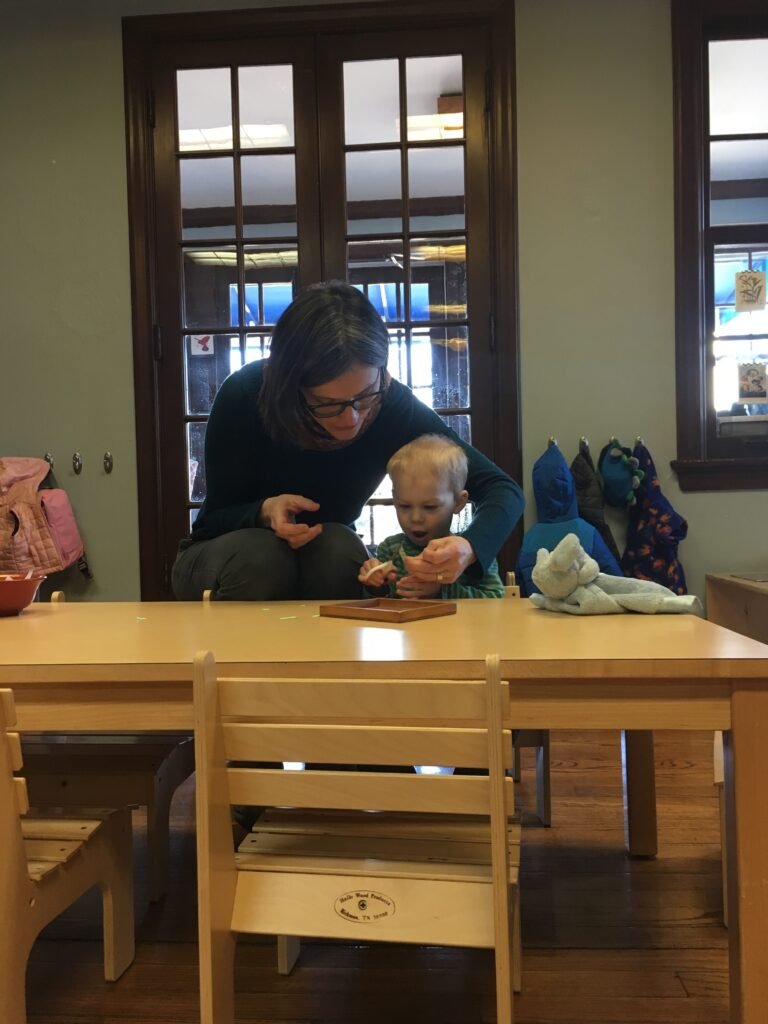
 Black is the Body is a magnificent collection of essays. Emily Bernard explores race, home, belonging, family, influence and so much more. The author is searching for revelation and gives it to the reader. Black is the Body is brilliant. Read it.
Black is the Body is a magnificent collection of essays. Emily Bernard explores race, home, belonging, family, influence and so much more. The author is searching for revelation and gives it to the reader. Black is the Body is brilliant. Read it. Just Mercy follows a lawyer's fight for justice and deftly exposes the shortcomings of our criminal justice system. Reading story after story, your heart will be broken open - making room for compassion and a desire for justice. Bryan Stevenson continues the struggle. He was in the
Just Mercy follows a lawyer's fight for justice and deftly exposes the shortcomings of our criminal justice system. Reading story after story, your heart will be broken open - making room for compassion and a desire for justice. Bryan Stevenson continues the struggle. He was in the  Citizen is a collection of poems in which Claudia Rankine tells stories both her own and belonging to her community. She gives a very real understanding of life as a person of color in the United States, exploring the realities of daily life as well as narratives in the media. Her work is powerful and profound. It's impossible to turn away from the truths in her work.
Citizen is a collection of poems in which Claudia Rankine tells stories both her own and belonging to her community. She gives a very real understanding of life as a person of color in the United States, exploring the realities of daily life as well as narratives in the media. Her work is powerful and profound. It's impossible to turn away from the truths in her work. In Baracoon Zora Neale Hurston introduces us to Cudjo Lewis, who tells his story of being transported to the United States from Africa as a slave. Hurston's interviews with Lewis give us a first-hand account of this horrific part of our history. The book is important in many ways, perhaps most profoundly in that it forces us to confront a very real piece of our history.These books are individually brilliant. But, if you can read them all, the truths each manifests are amplified by every other book. Read, read, read.
In Baracoon Zora Neale Hurston introduces us to Cudjo Lewis, who tells his story of being transported to the United States from Africa as a slave. Hurston's interviews with Lewis give us a first-hand account of this horrific part of our history. The book is important in many ways, perhaps most profoundly in that it forces us to confront a very real piece of our history.These books are individually brilliant. But, if you can read them all, the truths each manifests are amplified by every other book. Read, read, read. 

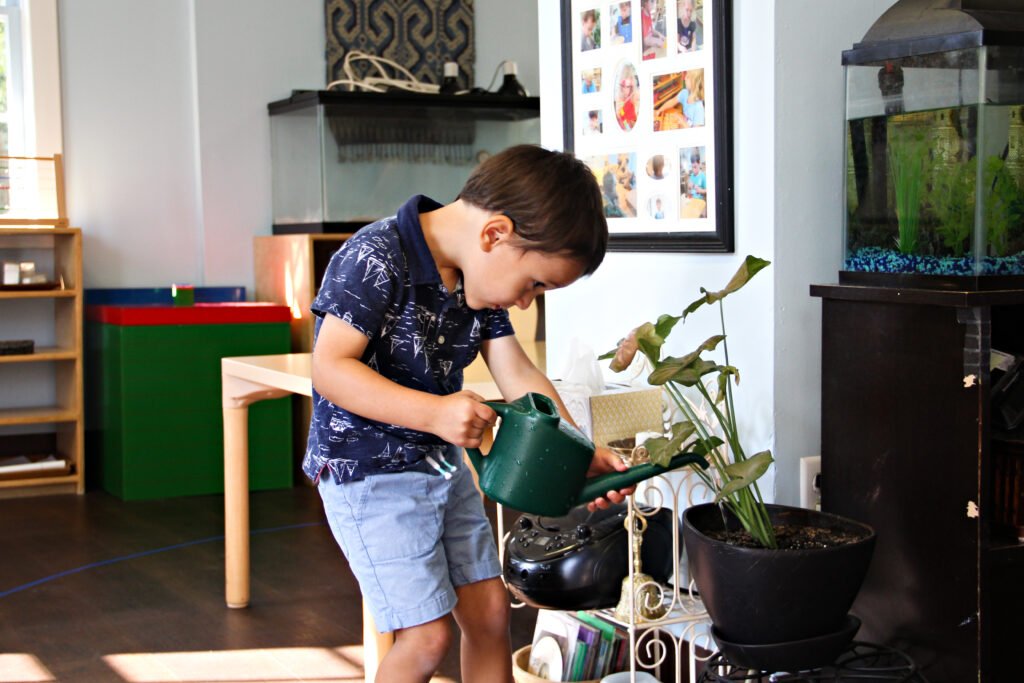 Transitioning toward independence can be difficult - we carried and dressed and fed out of love. It's understandable that we may be slow to give up these signs of love. However, our children grow, change and need us differently. As this happens, our love can now be manifest through a willingness to let them gradually take on the tasks of humanity. We are given the opportunity to love our children into independence.
Transitioning toward independence can be difficult - we carried and dressed and fed out of love. It's understandable that we may be slow to give up these signs of love. However, our children grow, change and need us differently. As this happens, our love can now be manifest through a willingness to let them gradually take on the tasks of humanity. We are given the opportunity to love our children into independence.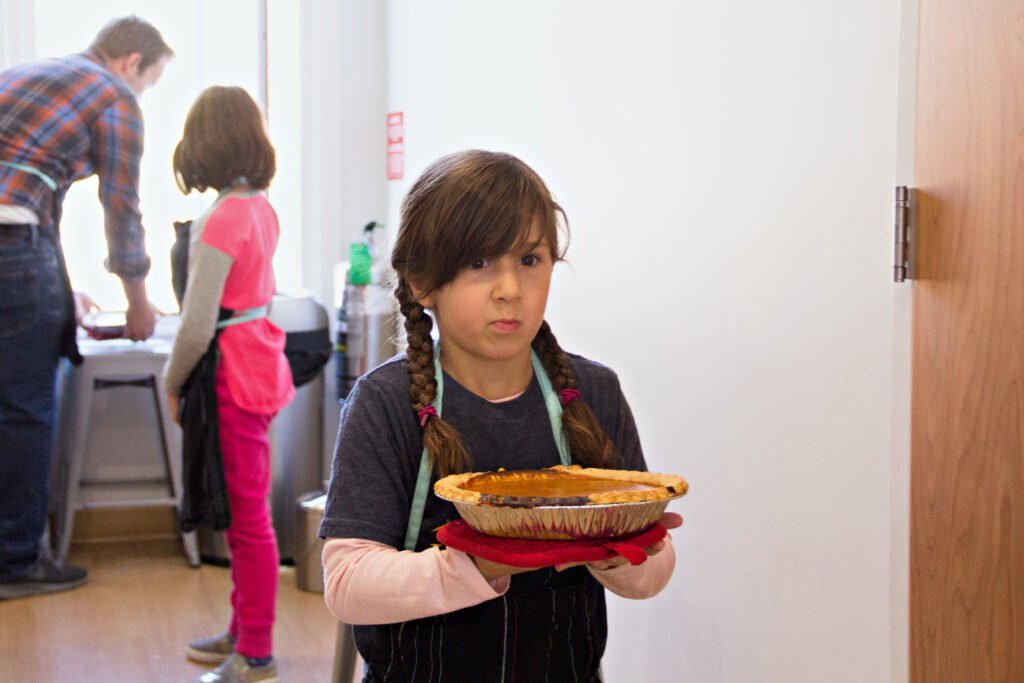 Each child's and each family's path toward independence will look a little different. That said, there are times when particular steps can be made most easily. If we allow children to acquire life skills at the moments when they are interested, we have done them - and ourselves - a great favor. When the child's internal motivation has passed, skills must be taught rather than naturally acquired and children often push back. On our children's journey towards independence we're looking for these choice times when acquisitions are made most naturally. Parenting is made easier by giving your child the right kind of independence at the right time. It serves no one to wait too long to allow children to grow.
Each child's and each family's path toward independence will look a little different. That said, there are times when particular steps can be made most easily. If we allow children to acquire life skills at the moments when they are interested, we have done them - and ourselves - a great favor. When the child's internal motivation has passed, skills must be taught rather than naturally acquired and children often push back. On our children's journey towards independence we're looking for these choice times when acquisitions are made most naturally. Parenting is made easier by giving your child the right kind of independence at the right time. It serves no one to wait too long to allow children to grow. The road is, of course, bumpy. We never hit all the magic times, and it can feel overwhelming to try. Here are two hints for finding these opportune moments for your child. First, observe them. When you notice that your child is trying to do something - let them. When you think your child seems ready to do something alone or for themselves - let them try. Second, talk to your child's guide. There are many acquisitions that happen on a similar trajectory for most children. Guides are masters of this knowledge! Go to parent education, reach out, ask and let your community support you in this endeavor. This is not work you have to do alone.
The road is, of course, bumpy. We never hit all the magic times, and it can feel overwhelming to try. Here are two hints for finding these opportune moments for your child. First, observe them. When you notice that your child is trying to do something - let them. When you think your child seems ready to do something alone or for themselves - let them try. Second, talk to your child's guide. There are many acquisitions that happen on a similar trajectory for most children. Guides are masters of this knowledge! Go to parent education, reach out, ask and let your community support you in this endeavor. This is not work you have to do alone.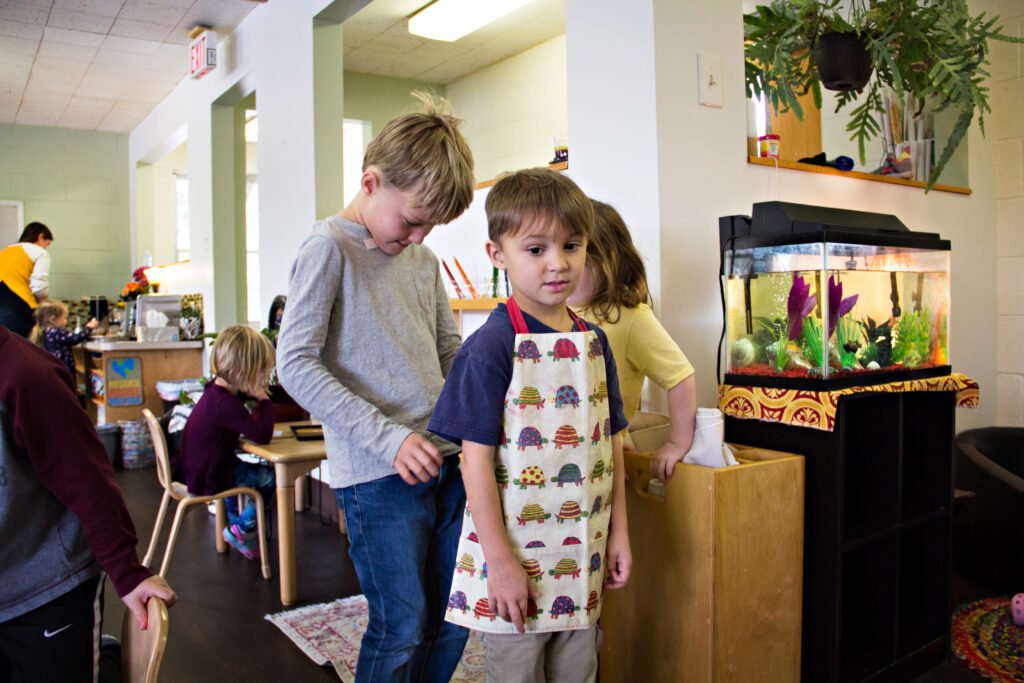 Don't get caught in the false dichotomy of love and independence - it is not an either/or choice. The path of love and independence is a beautiful dance of providing what is needed, of letting go, of being there to hold space for the child as they explore the world themselves and of letting them take off on their own.My thanks, as always, to the photographic genius of Melinda Smith.
Don't get caught in the false dichotomy of love and independence - it is not an either/or choice. The path of love and independence is a beautiful dance of providing what is needed, of letting go, of being there to hold space for the child as they explore the world themselves and of letting them take off on their own.My thanks, as always, to the photographic genius of Melinda Smith.







 Assessments are only helpful if they give information which is valid and accurate. Surely many of us can relate to the experience of doing well on a test but not truly understanding the information tested. So, unlike traditional models, assessment in Montessori classrooms provides real feedback to the guide - and the child - about their understanding.The child is frequently assessed by their guide through direct interaction and observation. This one-on-one consideration allows the guide concrete understanding of where a child is, what they understand and where any gaps in knowledge might be.
Assessments are only helpful if they give information which is valid and accurate. Surely many of us can relate to the experience of doing well on a test but not truly understanding the information tested. So, unlike traditional models, assessment in Montessori classrooms provides real feedback to the guide - and the child - about their understanding.The child is frequently assessed by their guide through direct interaction and observation. This one-on-one consideration allows the guide concrete understanding of where a child is, what they understand and where any gaps in knowledge might be. Moreover, the children are given the skills to self-assess - to determine for themselves where they need more practice, where they went wrong, what they need to do to succeed. This work is not done in a vacuum; the guide works on the skill of self-assessment with the child. In the Elementary classroom this work can concretely be seen during weekly conferences although in reality the work is done every day. This is true not just of academic feats but also of social and emotional endeavors.
Moreover, the children are given the skills to self-assess - to determine for themselves where they need more practice, where they went wrong, what they need to do to succeed. This work is not done in a vacuum; the guide works on the skill of self-assessment with the child. In the Elementary classroom this work can concretely be seen during weekly conferences although in reality the work is done every day. This is true not just of academic feats but also of social and emotional endeavors. Testing in the more traditional sense is, however, a reality of our world. And as test-taking is a skill in and of itself, it is something we want to give the children some experience with. And so, at the beginning of March our 3rd through 6th year students will embark on a week of standardized testing after spending time at the end February prepping for the experience. For those with 3rd years, please know that this is a rite of passage that is generally greeted with excitement and eager anticipation!As this type of test is divergent from the experiences most Montessori children are familiar with, the message that we send our children about it is important and formative.To that end, we ask that you encourage your children to do their best without unnecessarily weighting the outcomes. From our perspective, this test gives them practice and exposure to the types of standardized tests which they may be taking in the future. It does not necessarily mean one thing or another about them academically. It has gravity and importance, but it does not (and cannot) reflect the fullness of their intellect or ability.
Testing in the more traditional sense is, however, a reality of our world. And as test-taking is a skill in and of itself, it is something we want to give the children some experience with. And so, at the beginning of March our 3rd through 6th year students will embark on a week of standardized testing after spending time at the end February prepping for the experience. For those with 3rd years, please know that this is a rite of passage that is generally greeted with excitement and eager anticipation!As this type of test is divergent from the experiences most Montessori children are familiar with, the message that we send our children about it is important and formative.To that end, we ask that you encourage your children to do their best without unnecessarily weighting the outcomes. From our perspective, this test gives them practice and exposure to the types of standardized tests which they may be taking in the future. It does not necessarily mean one thing or another about them academically. It has gravity and importance, but it does not (and cannot) reflect the fullness of their intellect or ability. Finally, when you receive your child's scores in the next few months, please refrain from sharing the results with them. This information is not helpful to your child, and it is difficult to share scores with children without giving them false import. Remember that while the scores may be helpful on a macro level (e.g., providing feedback to guides regarding class-wide strengths or weaknesses), the scores are taken out of any meaningful context for children. The children may try to contextualize their numbers by comparing them with classmates which is, as you can imagine, beneficial to no one. The social nature of Elementary children, coupled with the novelty of test scores, lead us to ask the community as a whole to refrain from sharing test results with children.
Finally, when you receive your child's scores in the next few months, please refrain from sharing the results with them. This information is not helpful to your child, and it is difficult to share scores with children without giving them false import. Remember that while the scores may be helpful on a macro level (e.g., providing feedback to guides regarding class-wide strengths or weaknesses), the scores are taken out of any meaningful context for children. The children may try to contextualize their numbers by comparing them with classmates which is, as you can imagine, beneficial to no one. The social nature of Elementary children, coupled with the novelty of test scores, lead us to ask the community as a whole to refrain from sharing test results with children. The important parenting work surrounding the test taking experience is to reassure your child that while you want them to do their best and try their hardest, you love them anyway, no matter what. Make sure that they know that the test does not prove or disprove anything about them as people. And finally, to support the entirety of the experience, make sure they are well-rested, well-fed and unscreened the morning of testing.My thanks to Anna Schwind for many, many of the above words along with lots of insights (as always!). The brilliance of the photography comes from Melinda Smith and Lauren Knight.
The important parenting work surrounding the test taking experience is to reassure your child that while you want them to do their best and try their hardest, you love them anyway, no matter what. Make sure that they know that the test does not prove or disprove anything about them as people. And finally, to support the entirety of the experience, make sure they are well-rested, well-fed and unscreened the morning of testing.My thanks to Anna Schwind for many, many of the above words along with lots of insights (as always!). The brilliance of the photography comes from Melinda Smith and Lauren Knight.









 My thanks to Lauren Knight and Samantha Clarke for the photos! And if you want to truly see the children in action, take a look at these.
My thanks to Lauren Knight and Samantha Clarke for the photos! And if you want to truly see the children in action, take a look at these.  Gabrielle attended Villa di Maria from age two to twelve and is now a freshman at Clayton High School. (And yes, she is the daughter of Mrs. McAuley, P1 guide extraordinaire.) She was struck by the opportunity to help bond the city with the county by connecting Clayton High School students with communities in other parts of St. Louis. To that end, she applied for and was granted a plot of land through St. Louis’s Land Reutilization Authority’s Garden Lease Program to start a community garden downtown.
Gabrielle attended Villa di Maria from age two to twelve and is now a freshman at Clayton High School. (And yes, she is the daughter of Mrs. McAuley, P1 guide extraordinaire.) She was struck by the opportunity to help bond the city with the county by connecting Clayton High School students with communities in other parts of St. Louis. To that end, she applied for and was granted a plot of land through St. Louis’s Land Reutilization Authority’s Garden Lease Program to start a community garden downtown. Good luck Gabrielle! It's a delight to see the good you are putting back into the world.
Good luck Gabrielle! It's a delight to see the good you are putting back into the world.
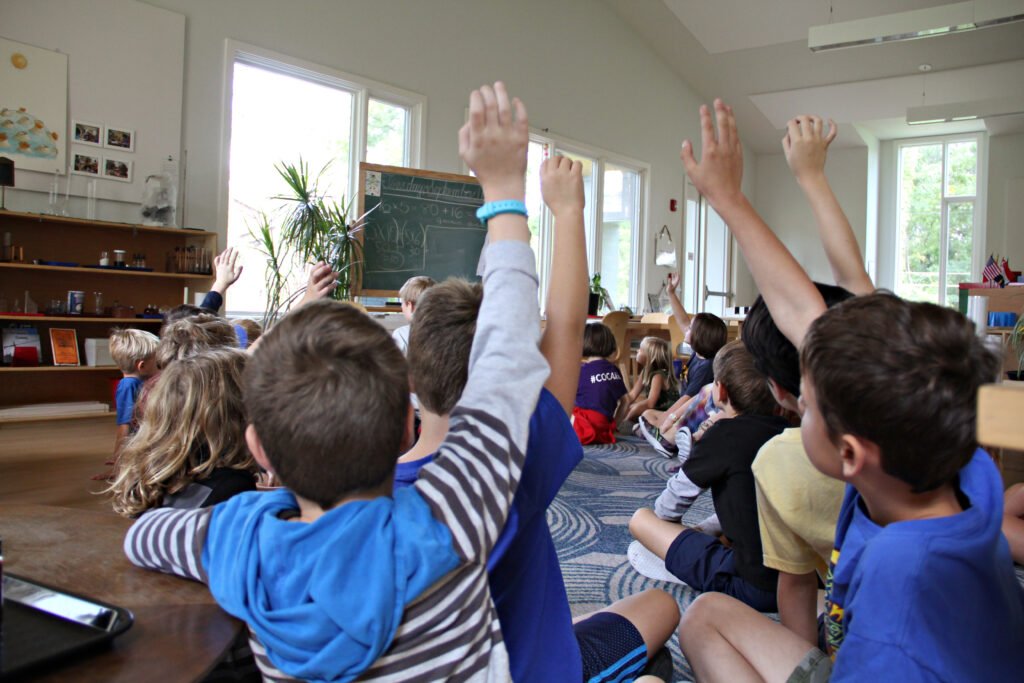 Welcome to the second part of the series on creating community together. The previous
Welcome to the second part of the series on creating community together. The previous 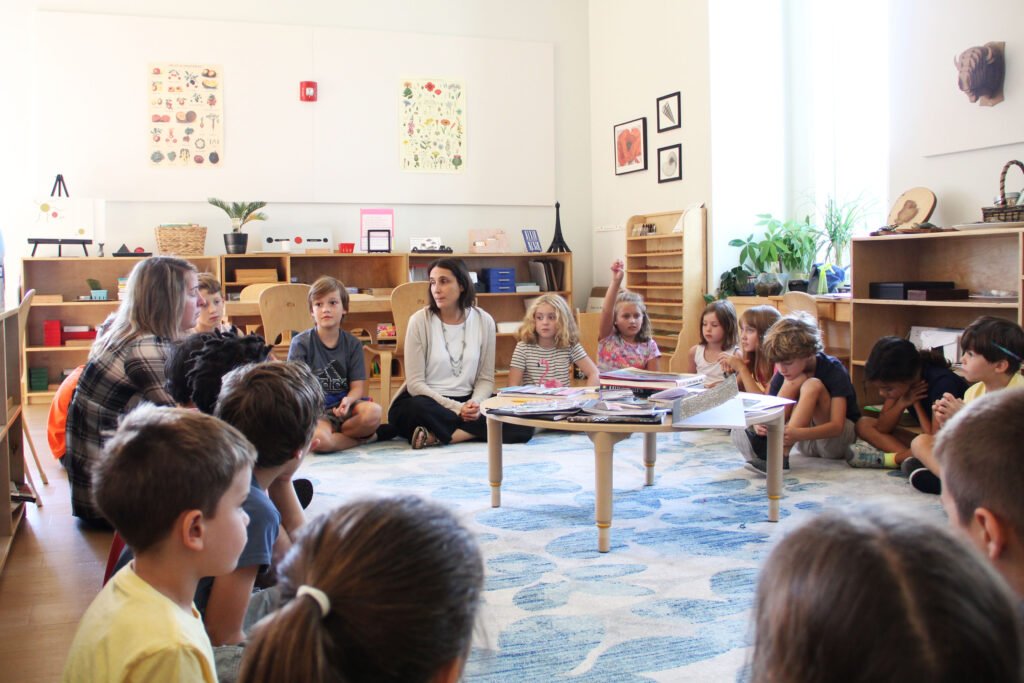
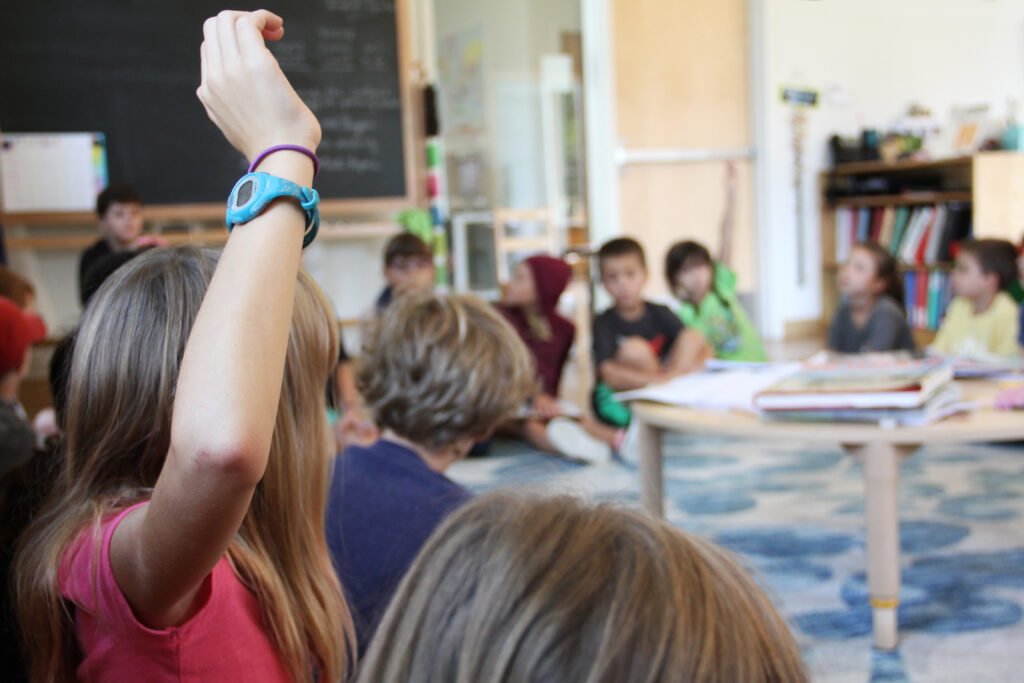
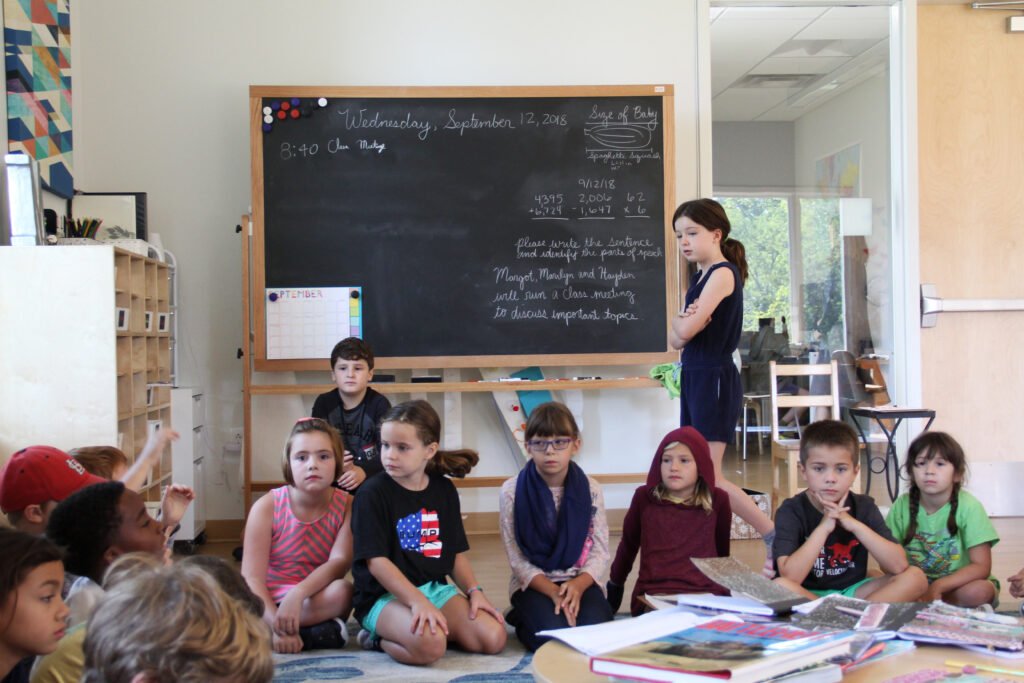
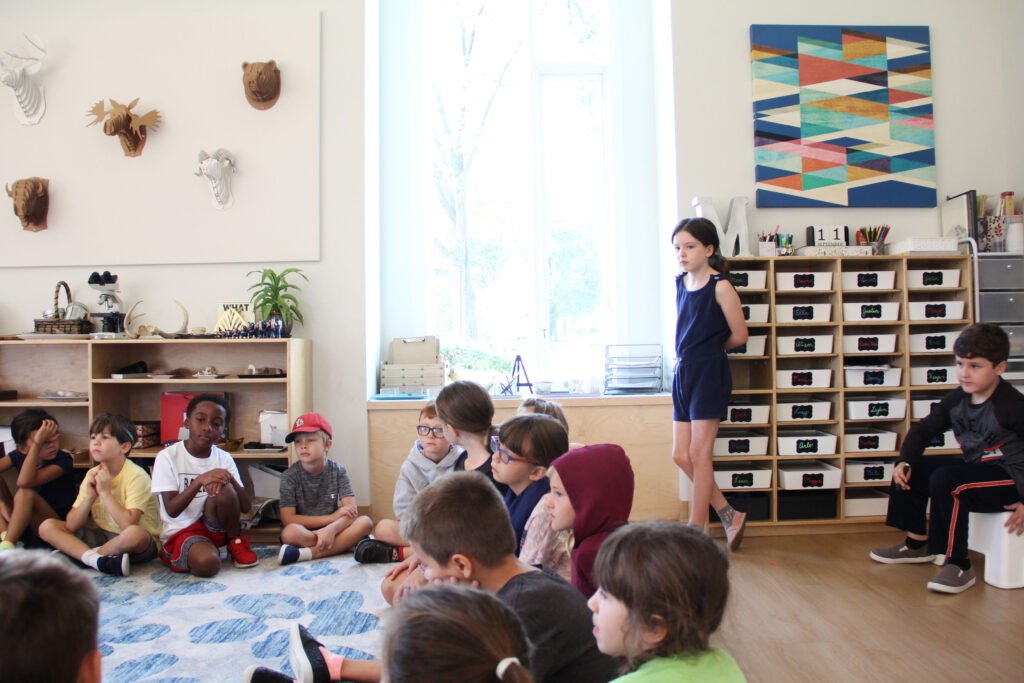
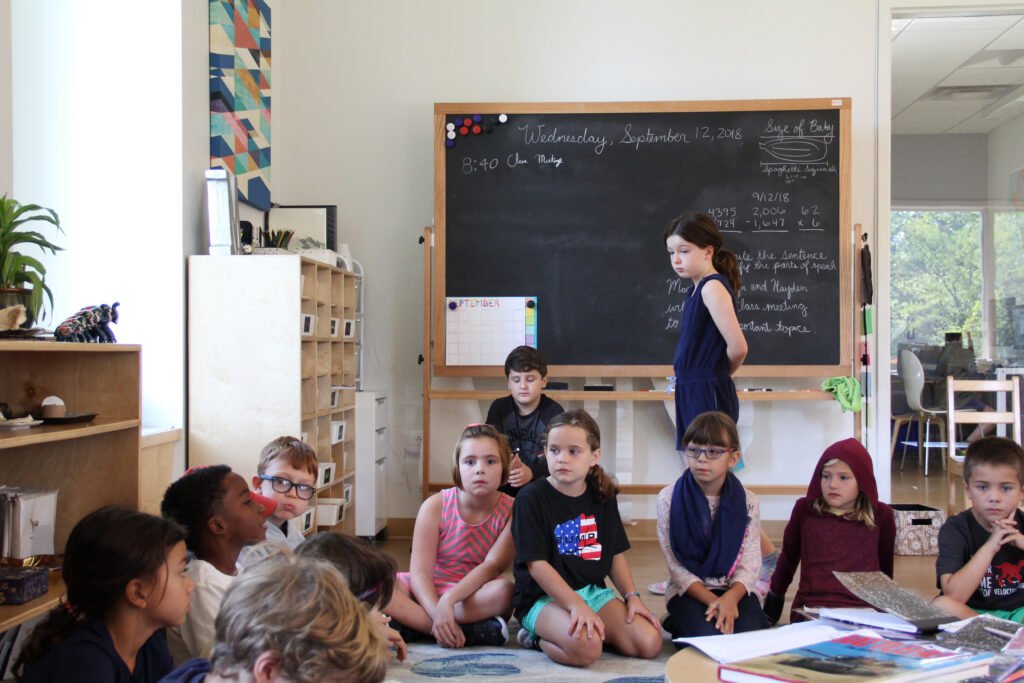 As expected, the first few meetings were a little bumpy, but as the students practiced working with the notebook items and the agenda and each of the different roles, they have become more skilled. Class meetings run smoothly now, and everyone knows what is expected.
As expected, the first few meetings were a little bumpy, but as the students practiced working with the notebook items and the agenda and each of the different roles, they have become more skilled. Class meetings run smoothly now, and everyone knows what is expected.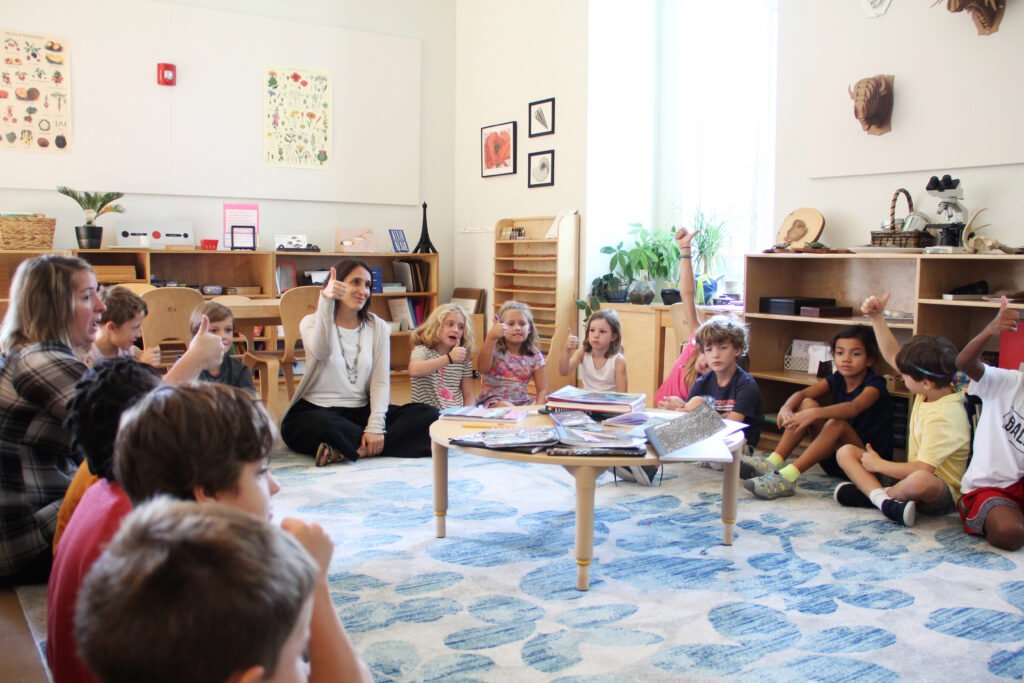 After the meeting, the meeting notes and agenda are placed back into the binder, as a public record for the entire community. Should anyone forget what was decided, they can check.
After the meeting, the meeting notes and agenda are placed back into the binder, as a public record for the entire community. Should anyone forget what was decided, they can check. February 1 - February 10
February 1 - February 10 February 9
February 9 February 16
February 16 February 24:
February 24: